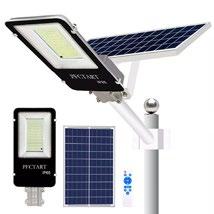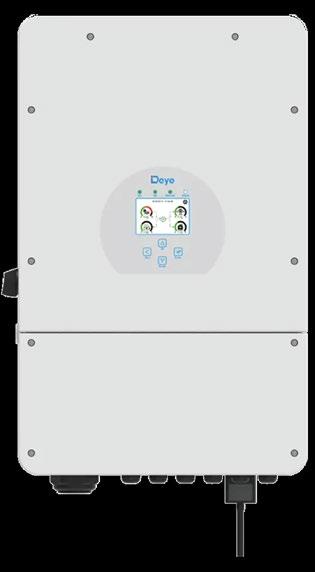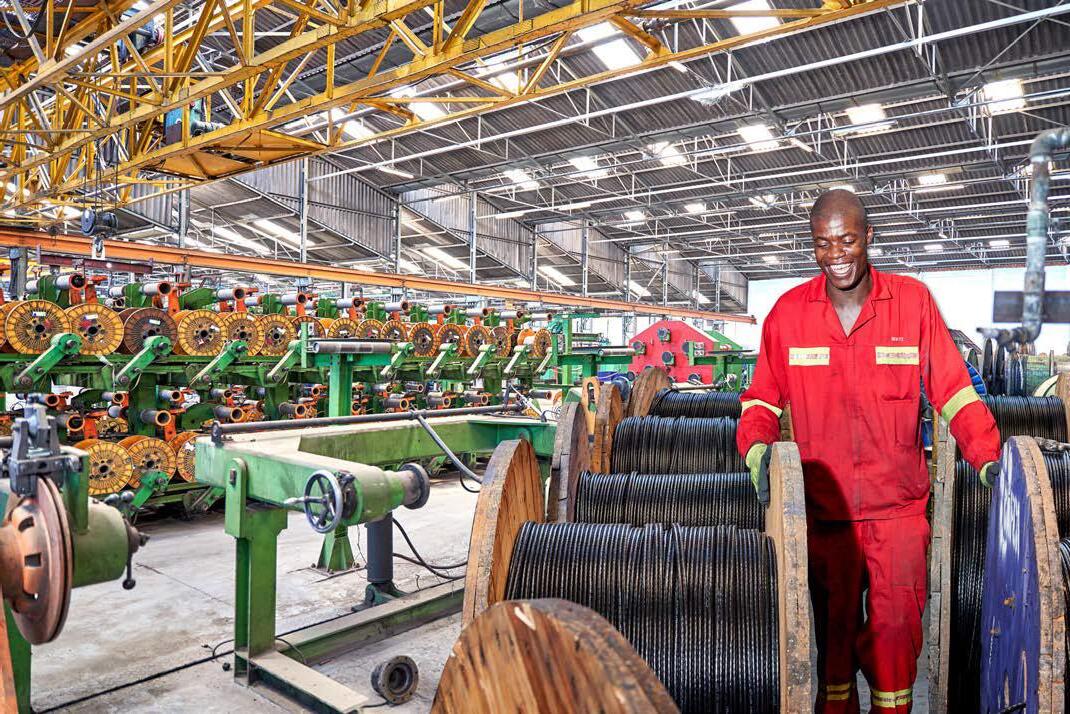






Reliable supply of high-quality gases for the mining and manufacturing sectors


















































































































Welcome to the latest edition of Energy and Power Insider magazine, where we highlight recent developments shaping Zimbabwe’s energy sector. This issue features a mix of traditional and renewable energy innovations, showcasing the nation's progress towards a more dynamic and sustainable future. The community of Avondale West and its surrounding areas celebrated a significant new addition on July 18th with the grand opening of the Energy Park Service Station.
Strategically located at 63 West Road, this new facility is more than just a place to refuel; it's a hub of convenience. Management at the station believes the on-site kiosk will have a major impact on the community, given that the nearest local shops are approximately 3km away. This development provides a range of amenities designed to enhance the daily lives of residents and road users alike, underscoring its immediate benefit to the Avondale community.
Sinet Africa's vision for renewable energy independence in Zimbabwe continues to gain momentum. The company, which was established in 2010, recently demonstrated its commitment to self-sufficiency by installing a new solar power system a a local Sports Club in Harare.
This project, which includes a large ground-mounted solar panel array and a solar carport, not only provides a reliable power source for the club but also serves as a modern example of integrating renewable energy into existing infrastructure. The initiative is a powerful statement about the growing commitment to green energy within the corporate sector across Zimbabwe, the SADC region, and the African continent, inspiring other businesses to adopt similar sustainable technologies.
ZERA has developed a new solar product certification system with support from the COMESA Renewable Energy and Energy Efficiency Investment Framework. The system aims to ensure that only highquality, safe, and reliable solar products are imported and sold in the country.
Aurora Energy, a leading renewable energy distributor, was actively involved in the workshops and pilot project for these new regulations, which adopt standards set by the International Electrotechnical Commission.
We also delve into the fundamentals of electrical cables with insights from CAFCA. An electrical cable is a grouping of one or more insulated electrical conductors designed to transmit electrical power or signals from one point to another.
The key components include Conductors, which are typically made from highly conductive metals like copper and aluminum. Their size is determined by the amount of current they must carry—the greater the current, the thicker the conductor.
The conductors are protected by Insulators, which are poor conductors of electricity that prevent current from passing through. While older materials included paper or rubber, modern insulators are made from synthetic polymers such as Polyvinyl Chloride (PVC), Polyethylene, and Butyl Rubber, with the thickness of the insulation varying based on the voltage it needs to withstand.
In other news, ZERA recently hosted the RERA Regional Information Sharing Seminar in Harare, fostering regional collaboration. The government also approved a Memorandum of Understanding with Zambia for a new refined petroleum pipeline, a major step for regional energy infrastructure.
Furthermore, ZERA’s 2024 Annual Report outlines a clear vision for universal access to sustainable energy by 2030, a goal aligned with the country’s National Integrated Energy Resource Plan. This strategic focus is complemented by key safety discussions with the LPGSAZ and a new ISO 9001:2015 certification for Dinson Iron & Steel Company.




























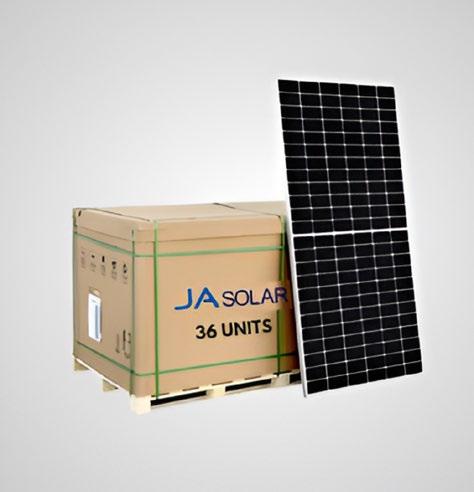






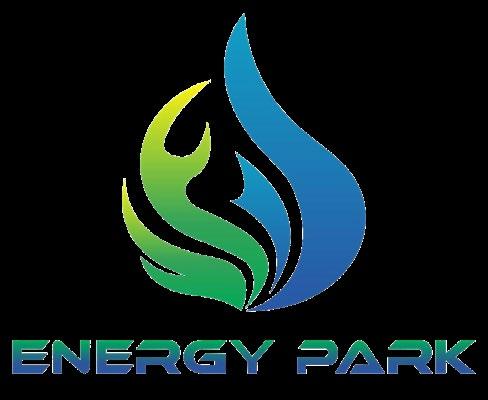




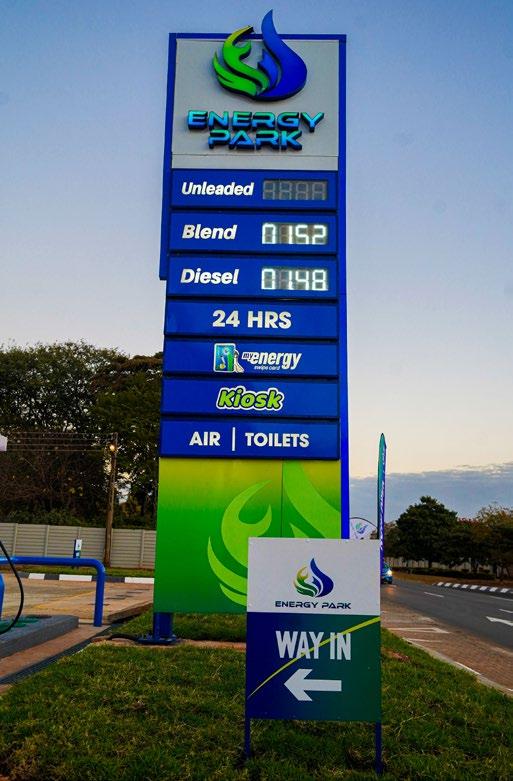
The community of Avondale West and its surrounding areas celebrated a significant new addition on July 18th with the grand opening of the Energy Park Service Station, strategically located at 63 West Road. This new facility promises not only convenient fuel access but also a range of amenities designed to enhance the daily lives of residents and road users.
“I see it as a great development and lots of convenience to road users. The kiosk has a major impact of convenience to the community given the nearest local shops are about 3kms away in any direction from the site,” remarked Ismail Kassim, Operations Manager of Energy Park P/L, highlighting the immediate benefits to the Avondale community. The new Avondale West station distinguishes itself from other fuel stations in Harare through its smart design and focus on customer convenience.
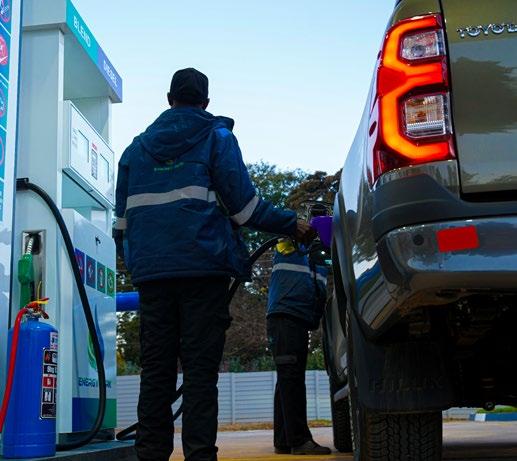



Its easy accessibility and commitment in providing “the best fuel in town” aim to set a new standard for service stations in the area. This Avondale location marks a strategic expansion for Energy Park P/L, representing their 14th station in Harare and signalling a deliberate move to target a new market segment.
To celebrate its opening, the Avondale service station rolled out special promotions and loyalty programs. During the opening week, customers enjoyed giveaways including free My Energy Card registrations loaded with fuel, along with Energy Park key rings, sanitizer bottles, T-shirts, and caps, depending on their purchase amount.
As is standard for all Energy Park outlets, the Avondale West station operates 24/7, ensuring round-the-clock access to fuel and services. Currently, the station offers Diesel and Petrol Blend (E20). The Energy Park Service Station provides a quick shop (CMART) for customer convenience, free tyre pressure checks, and clean ablution facilities. Looking ahead, the station has ambitious plans for future expansion, laid out in three distinct phases. “At this site, we have a quick shop for your convenience (CMART), we also have free pressure, clean ablutions.
We are also looking forward to doing a drive-through food outlet; this will be our Phase Two. Then we have a Phase Three that will have an Indian cuisine restaurant at the back,” the Operations Manager revealed, outlining the exciting developments to come.




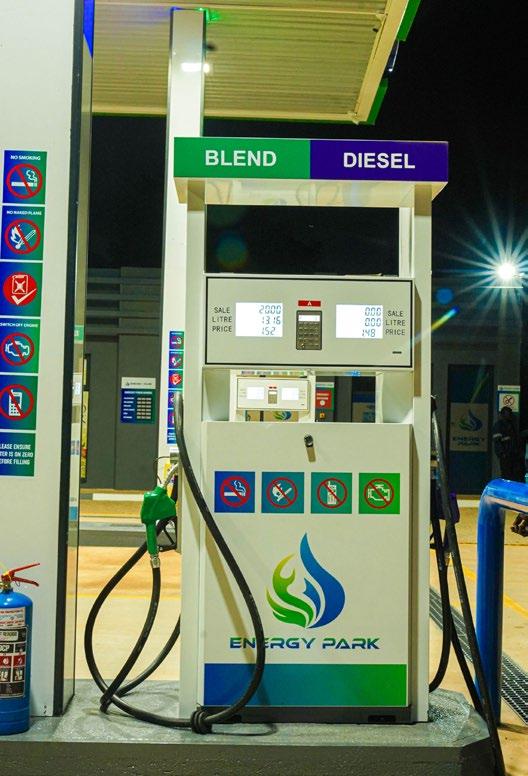

A key feature enhancing customer experience and efficiency across all Energy Park service stations, including the new Avondale site, is the My Energy Card system. This cashless solution simplifies fuel purchases and offers an effective tool for companies managing their fleets. Additionally, the station supports Ecocash services and local and international bank card swiping, further easing transactions for customers.Ensuring a consistent and reliable supply of petroleum products is a top priority for Energy Park.




“This site alone always has sufficient storage to sustain itself for at least 9 days of stock. Given our efficient fleet, we do not usually run out of stocks at any given time,” Ismail confidently stated, attributing this reliability



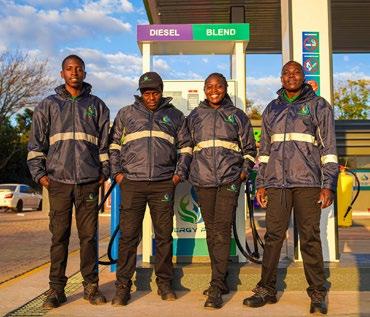


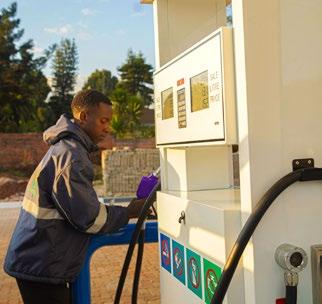



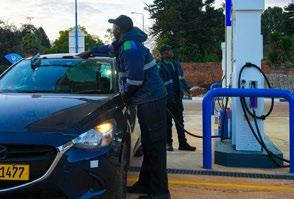
This proactive approach has allowed Energy Park to consistently maintain stock levels even during challenging periods. To guarantee a smooth and efficient customer experience, especially during peak hours, Energy Park has proactively identified peak times and deployed sufficient staff to manage traffic flow.
This includes personnel on the ground assisting clients by directing them to the pumps. Addressing potential traffic congestion around the new station was also a key consideration during its development.
The road leading to the station was specifically widened during construction to ease both on-site and main road traffic. Furthermore, the design incorporates three entrances and exits, strategically reducing pressure on the main road and facilitating smoother entry and exit from the site.
The development of the new Avondale service station has had a positive impact on local employment. The construction phase alone engaged approximately 80 individuals from four different companies. Currently, the operational station employs a total of 19 people, contributing directly to local livelihoods.
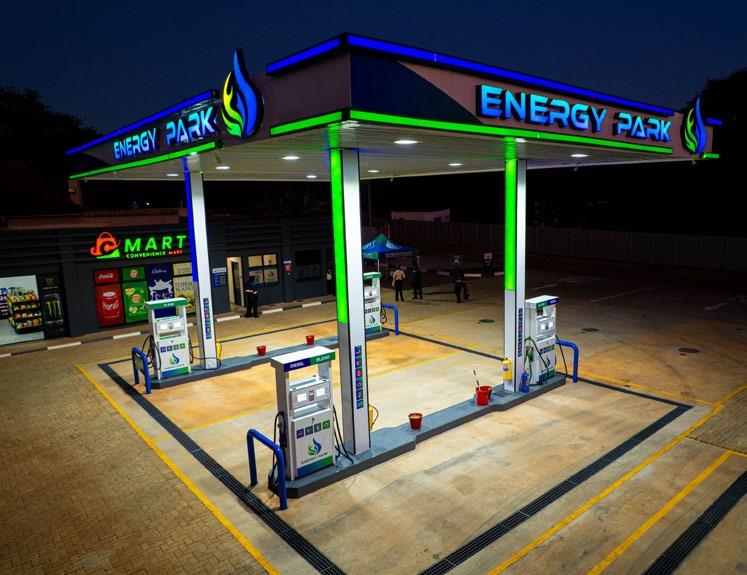
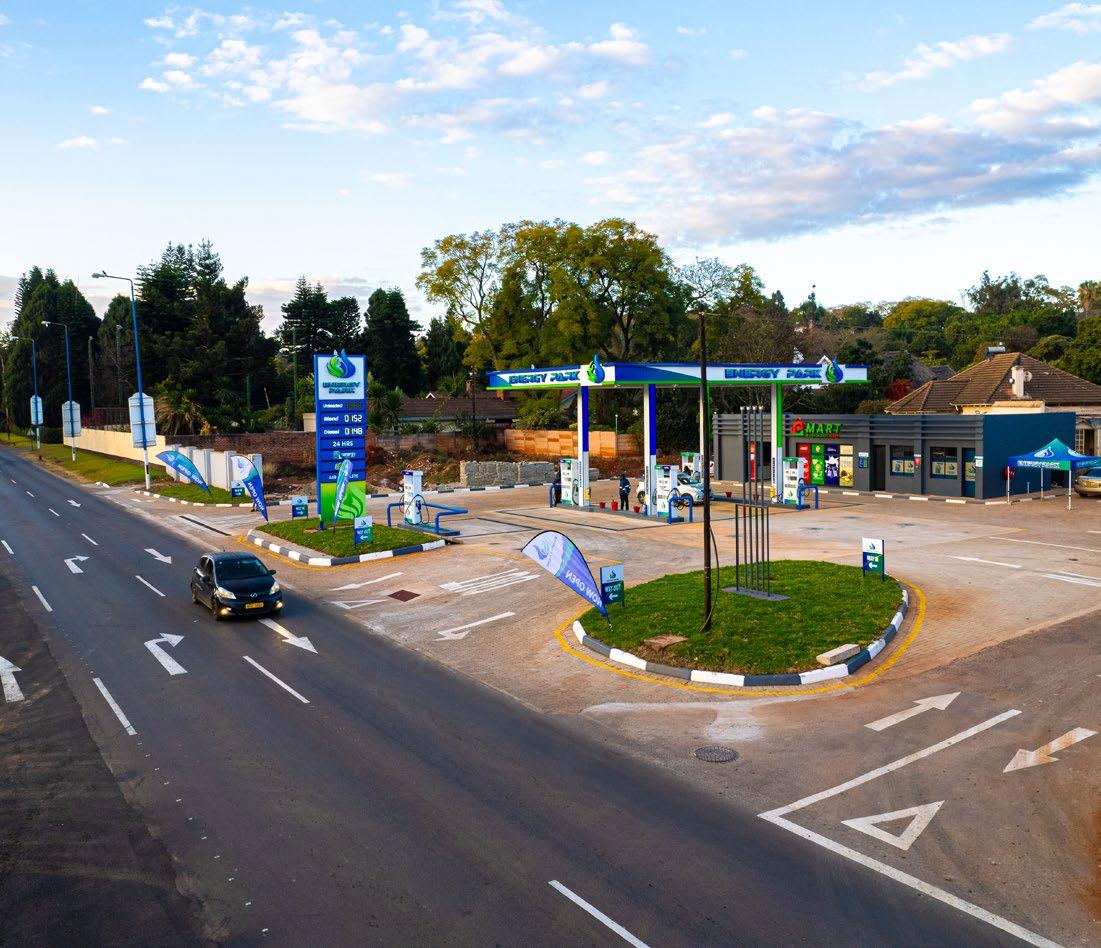






Beyond its commercial operations, Energy Park is deeply committed to corporate socialresponsibility. “We have had several social responsibilities, the most recent being the ALL-STARS Energy Park cricket tournament that we hosted targeting the ages from 9-year-olds up to 19 years,” shared Ismail.
He emphasized the importance of continuing such initiatives to assist in the national fight against drugs and drug abuse, stating, “Giving our community something to do is the best we can do for humankind; after all, they say ‘an idle mind is the devil’s workshop’.” Energy Park plans to continuously develop more community engagement ideas.
The long-term vision for the Avondale service station is structured in three phases, aiming for completion around July 2026. Phase 1, which is now operational, includes the service station offices and kiosk. Phase 2 will introduce a coffee shop and a food drive-through, while Phase 3 will see the addition of an Indian cuisine restaurant at the rear of the service station, promising a comprehensive and diverse offering for the Avondale West community.








Solar Panels
Hybrid Inverters
Lithium Batteries
Mounting Kits
Cabling & Accessories







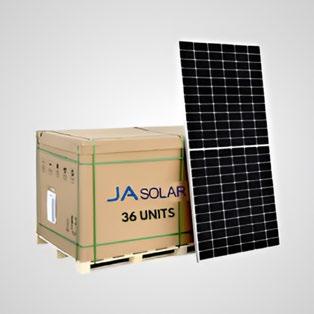

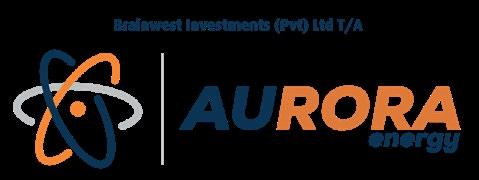
By Oyako Kanyenze
Harare, Zimbabwe – In a significant step toward regulating the renewable energy sector, the Zimbabwe Energy Regulatory Authority (ZERA), with support from the COMESA Renewable Energy and Energy Efficiency Investment Framework (RIFF), has developed a solar product certification system to ensure that only high-quality, safe, and reliable solar products are imported and sold in the country.
Aurora Energy, a leading renewable energy product distributor in Zimbabwe, has been actively involved in the Solar Product and Installations Regulations workshops and pilot project phase. Oyako Kanyenze, Business Development Director at Aurora Energy, emphasized the importance of these regulations in safeguarding consumers and promoting industry standards.
The new regulations adopt standards set by the International Electrotechnical Commission (IEC), a globally recognized organization that establishes benchmarks for electrical and electronic technologies. By implementing these standards, Zimbabwe ensures that solar products entering the market meet stringent safety, performance, and durability requirements.
ZERA, in collaboration with renewable energy stakeholders, has developed an online solar product registry ( https://www.zera.co.zw/solar-products-registration/ ) where distributors and manufacturers can submit their products for verification. Once approved, the products receive certification, confirming their compliance with national standards.
The registry is also accessible to the public, allowing consumers to verify whether a solar product they intend to purchase is certified for sale and installation in Zimbabwe. Additionally, the platform provides essential information such as warranty details and authorized sellers, empowering consumers to make informed decisions.



1. Assured Quality & Safety – Consumers can trust that certified products meet international safety and performance standards, reducing the risk of substandard or hazardous equipment.
2. Transparency & Accountability – The public registry allows buyers to verify product authenticity before purchase, minimizing fraud and counterfeit products.
3. Warranty Protection – Certified products come with verified warranties, ensuring consumers have recourse in case of defects.
4. Informed Decision-Making – Access to product details and approved sellers helps buyers choose reliable solar solutions.
Advantages for Distributors & Industry Players
1. Market Credibility – Certification enhances trust in distributors’ products, improving competitiveness.
2. Regulatory Compliance – Compliance with ZERA standards ensures smooth importation and sales processes.
3. Consumer Confidence Boost – Certified products attract more buyers, driving sales and fostering industry growth. Supporting Zimbabwe’s Renewable Energy Goals
This initiative aligns with the government’s mandate to promote safe, reliable, and sustainable energy access under the National Renewable Energy Policy. By eliminating substandard solar products, Zimbabwe safeguards consumers while encouraging investment in high-quality renewable energy solutions.
“The solar product certification system is a game-changer for Zimbabwe’s renewable energy sector,” said Kanyenze. “It protects consumers, enhances industry standards, and supports the country’s transition to sustainable energy.”
As Zimbabwe continues to expand its renewable energy market, the ZERA-led certification system sets a strong foundation for a more secure, efficient, and consumer-friendly solar industry.

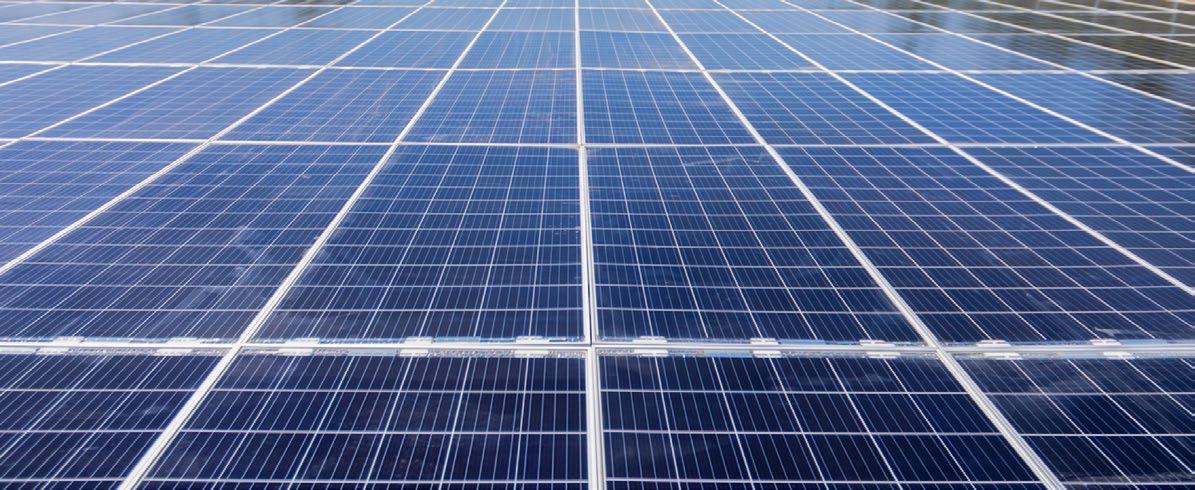


This initiative aligns with the government’s mandate to promote safe, reliable, and sustainable energy access under the National Renewable Energy Policy. By eliminating substandard solar products, Zimbabwe safeguards consumers while encouraging investment in high-quality renewable energy solutions.
“The solar product certification system is a game-changer for Zimbabwe’s renewable energy sector,” said Kanyenze. “It protects consumers, enhances industry standards, and supports the country’s transition to sustainable energy.”
As Zimbabwe continues to expand its renewable energy market, the ZERA-led certification system sets a strong foundation for a more secure, efficient, and consumer-friendly solar industry.




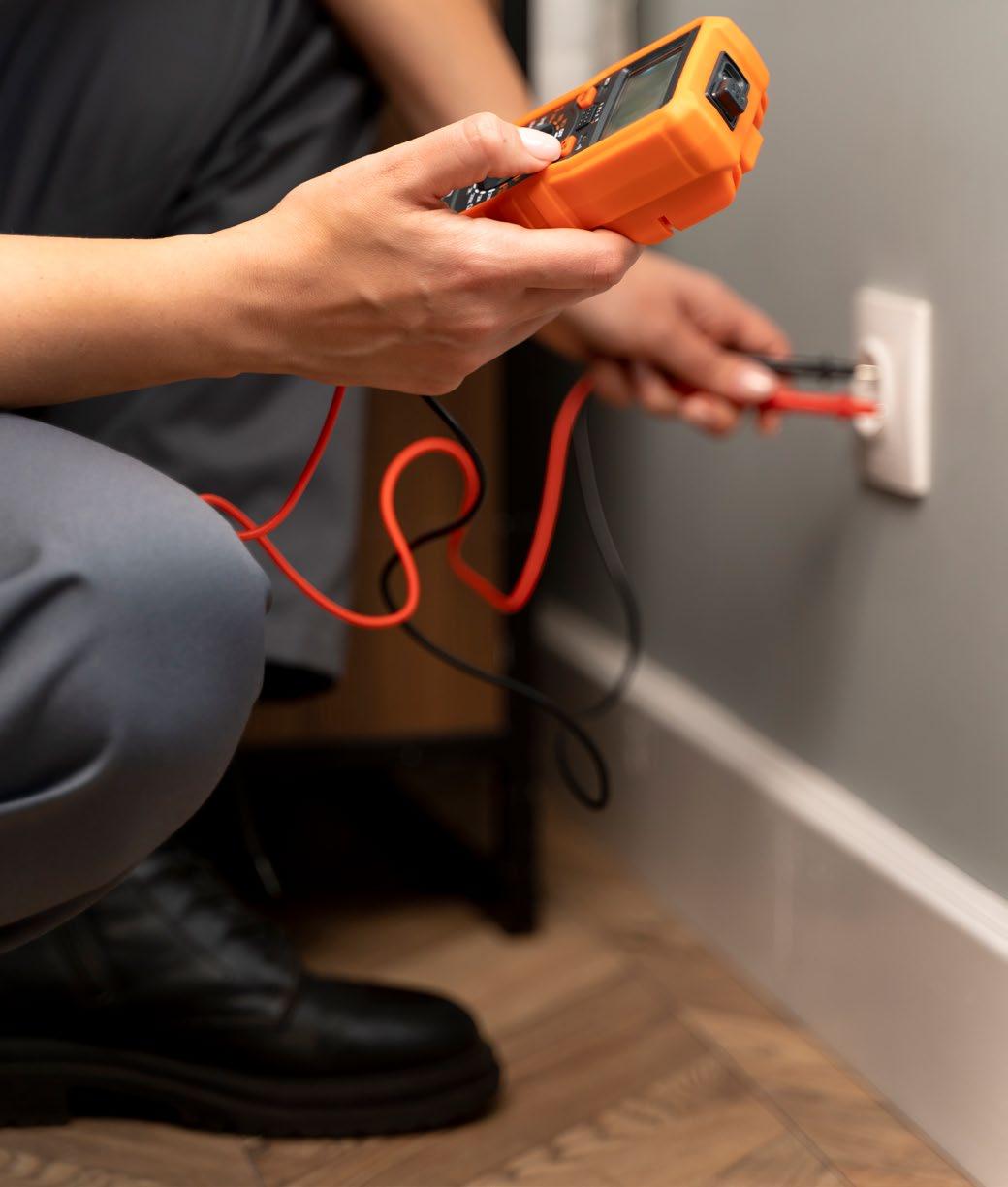


An electrical cable is a grouping of one or more insulated electrical conductors (wires) designed to transmit electrical power or signals. Electrical cables carry electric current from one point to another.
1.Conductors: are the electricity transmitting wires in a cable. These are made from high conducting metals like Copper and Aluminium which have low resistance.
2.Insulators: are bad conductors of electricity. Insulators do not allow electricity to pass through them. In earlier times, paper, cloth, or rubber were used as insulating materials. However, these are now replaced with different synthetic polymers such as Polyvinyl Chloride(PVC), Polyethylene, and Butyl Rubber.
Illustration of a Single Core Armoured cable: The conductors, usually copper wires, are covered with insulating material to prevent contact with each other, or with any external conducting materials. Insulation varies in thickness according to the voltage it has to withstand. Conductors vary in size in accordance with the amount of current they have to carry: the greater the current, the thicker the conductor.
3.Cable metal protection: In some cases the cables may have metal protections. Electrical metal shields (screens) are applied to isolate the signals that pass through the interior of the cable from possible external interference. Mechanical protection (armours) protect the cable from possible external aggressions and damage.
4.Outer Sheath: The function of this outer insulator jacket is eminently protection. The sheath protects the cable from atmospheric conditions like high moisture in the air, chemical reactions, or fire attacks. Commonly used sheaths are made from polyvinyl chloride (PVC).
Classes of Electrical Cable
Electrical cables are broadly classified by voltage:
Low voltage cables (up to 500 V): The cables in this category are generally applied in households for house-wiring or for connecting appliances.
Low Voltage cables (up to 1,000 V): (also called (0,6/1 kV) The cables in this section are used for industrial power installations in various fields (general industry, public installations, infrastructures, etc.).
Medium Voltage cables: from 3.3 kV to 22 kV. They are used to distribute electricity from electrical substations to transformer stations.
High Voltage cables: from 33 kV. They are used to transport electricity from the generating plants to the electrical substations.
Types of electric cables by their application
House Wires-House wires/Building Wires are electrical cables used for distributing electricity within a building; connecting to outlets, switches, and appliances to the mains supply. They are typically made of copper conductors with insulation to prevent short circuits and shocks.
Flexible Cables-Flexible cables are utilized in numerous applications to withstand the extreme stress of flexing and motion. In households, these are generally used to connect appliances or light duty machinery such as lawn mowers which require the cable to be pliable.
Cables for electric panels: Flexible cables for wiring electric cabinets. These electric cables are especially suitable for domestic use, for installation in public places and for internal wiring of electrical cabinets, switch boxes and small electrical appliances.


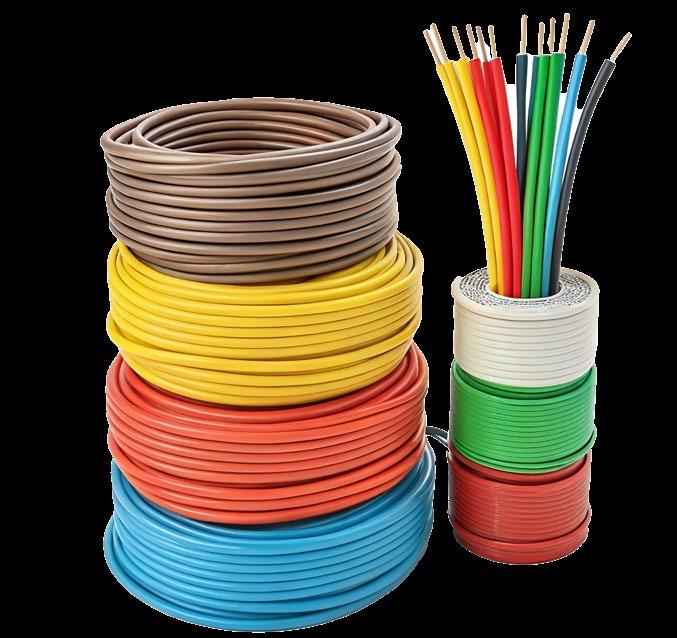


Power cables: Energy cables for industrial facilities and public places. It is common to find power cables in applications for power transmission in all types of low voltage connections, for industrial use and for variable frequency drive.
Armoured cables: Cables with aluminium or steel reinforcement for installations with risk of mechanical aggression. It is also common to find armoured cables in places where rodents are present, as well as in installations in premises with a risk of fire and explosion.
Rubber cables: The use of extra flexible rubber cables is very varied. We can find rubber cables in fixed industrial installations as well as in mobile service. Welding cables should have a rubber sheath, which allows high currents to be transmitted between the welding generator and the electrode.
Halogen-free cables: Low Halogen Cables with low smoke and corrosive gas emission in case of fire are suitable for use in wiring of electrical panels and public places, installations of all kinds in public places, individual derivations, emergency circuits, public distribution networks and also for mobile service.
Flame retardant cables: These cables are specially designed to transmit electrical energy in the extreme conditions that occur during a prolonged fire, guaranteeing supply to emergency equipment such as signalling, smoke extractors, acoustic alarms, water pumps, etc. Their use is recommended in emergency circuits in places with public concurrence.
Control cables: Control cables for fixed or mobile installations should be extremely flexible, as they are mainly designed for small household appliances, for the interconnection of machine parts used for manufacturing, for signalling and control systems, for the connection of motors or frequency converters, for signal transmission where the voltage induced by an external electromagnetic field may affect the transmitted signal or for power supply connections to avoid generating electromagnetic fields.
Instrumentation cables: These are flexible and shielded cables for the transmission of signals between equipment in industrial installations. Especially suitable for optimum data transmission in environments with a high level of electromagnetic interference.
Solar cables: These cables are particularly suitable for connecting photovoltaic panels, and from the panels to the DC to AC inverter.









Thanks to the design of their materials and their cover, which is especially resistant to solar radiation and extreme temperatures, they can be installed outdoors with full guarantees
Aluminium Overhead Conductors: Bare or insulated Aluminium conductors are suitable for transmission and distribution lines.

The colours of the electrical cables are governed by the International Electrical Commission Standard IEC 60446. For the identification of the conductors, the following colours are allowed: black, brown, red, orange, yellow, green, blue, violet, gray, white, pink and turquoise.
Neutral conductor: blue. It is recommended not to use more blue conductors to avoid confusion.
Phase conductor: black, grey or brown.
Protective or earthing conductor: two colours, yellow and green.
The Zimbabwean cable manufacturer satisfies the International Electrical Commission requirements by accreditation to ISO 9001 though Standards Association of Zimbabwe (SAZ) and South African Bureau of Standards (SABS).
Adherence to standards ensures quality and safety of cables.
The local manufacturer was the first Zimbabwean entity to gain accreditation to ISO 9001:2015 Quality Management Standard in 1993.
Environmental Management Standard ISO 14001:2015 –First Zimbabwean company to be accredited in 1999
Occupational Health and Safety Standard ISO 45001:2018 –Accredited in 2009
Energy Management Standard ISO 50001:2018 –First Company in Sub-Saharan Africa to gain accreditation in 1026
To avoid purchasing and installing sub-standard or smuggled cables and for recommended technical advice, buy all your cable requirements directly from the local manufacturer.







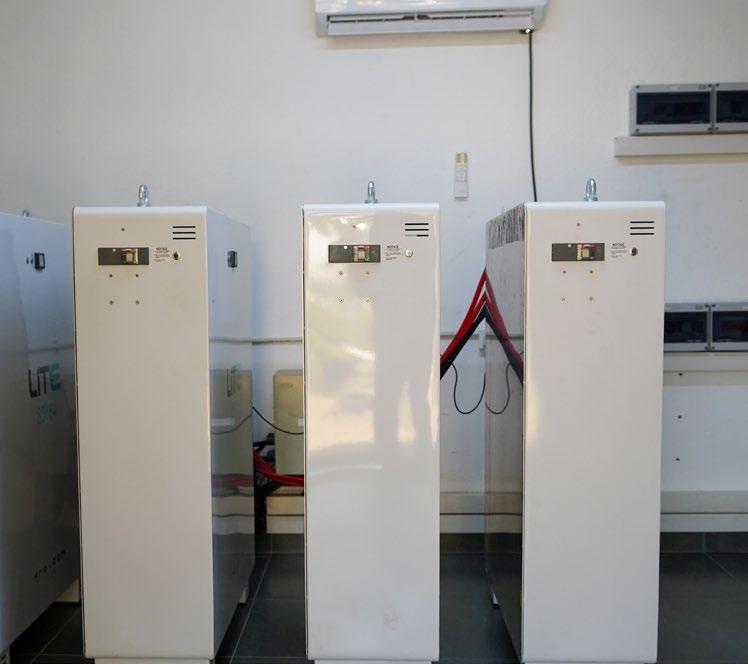

Sinet Africa recently completed the installation of a hybrid solar PV system at a local Sports Club in Harare. The initiative addresses critical challenges the club was facing, such as unreliable grid supply, high utility bills, and the heavy reliance on diesel generators, while prioritising solar as the club’s primary source of power. This project highlights the integration of renewable energy into the club’s existing power supply mix for optimum reliability and cost effectiveness in meeting its energy supply demand.
The Sports Club, renowned for its recreational activities, faced worsening power challenges due to inconsistent electricity supply. To combat these issues, Sinet Africa tailored a solar solution that integrates seamlessly into the club’s operation. At the heart of this initiative lies a sophisticated 60kVA Victron Solar System with a total capacity of 59.65 kWp solar array, supported by a Freedom Won Lithium battery bank with 320 kWh storage capacity. This setup ensures a reliable and uninterrupted power supply, paving the way for smooth operations in lighting, sports equipment, and essential office equipment.

The solar system will significantly lower electricity costs and generator running costs through reduced fuel and maintenance expenses, and cut the club’s carbon footprint — aligning with both environmental and financial sustainability goals. At the heart of Sinet Africa’s philosophy, as a company, is the belief that quality is non-negotiable. They take pride in delivering premium solar solutions powered by prestigious brands, and the Victron and Freedom Won components used in this project mirror that principle.
An additional advantage of the system is its remote monitoring capability, which allows the club and Sinet Africa technicians to track performance, battery health, and energy usage in real time from anywhere. This enables proactive maintenance, ensures optimal efficiency, and extends the system’s service life. According to Lovemore Bere, Projects Manager at Sinet Africa, the Sports Club now enjoys a dependable power source that keeps essential services operational without disruption. “By significantly lowering the reliance on diesel generators, we’re not only cutting fuel costs but also ensuring a continuous power supply even during grid outages,” he remarked.
The Sports Club’s new solar system has directly addressed and alleviated their power challenges in multiple ways. The installation ensures uninterrupted operations by providing a dependable power source, significantly reducing the dependence on expensive and environmentally harmful diesel generators. This not only lowers operational costs but also enhances the overall energy security of the facility. The move to solar also supports the club’s sustainability goals by reducing its carbon footprint and aligning with national green energy policies. The reliability of the service, even during national power cuts, also boosts public confidence in the bank’s stability and preparedness.


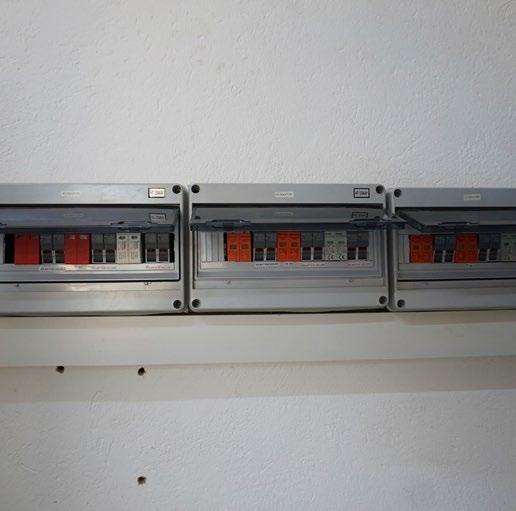
The Sports Club project is a prime example of Sinet Africa’s expertise in providing tailored solar solutions for diverse clients, showcasing its ability to design and implement a system that meets specific operational needs. At the club, Sinet Africa is powering all essential loads, demonstrating a deep understanding of the client’s energy demands and business continuity requirements. This project not only reinforces Sinet Africa’s reputation as a trusted solar partner but also illustrates its ability to serve a diverse client base—from financial institutions to schools, non-governmental organizations, and residential facilities—with professional, cost-effective, and future-ready energy systems.
The reliability and sustainability of Sinet Africa’s installations are ensured through the use of trusted, high-performance brands, tailored system designs, and professional installation by qualified technicians. Furthermore, the systems are equipped with comprehensive “Full Protection Kits,” which include electrical protection devices like DC and AC circuit breakers and surge protection devices, safeguarding the inverters, batteries, and panels from electrical faults and transient overvoltage from indirect lightning strikes, ensuring safety and reliability. Sinet Africa also provides strong after-sales support and maintenance, ensuring consistent performance and long-term value.

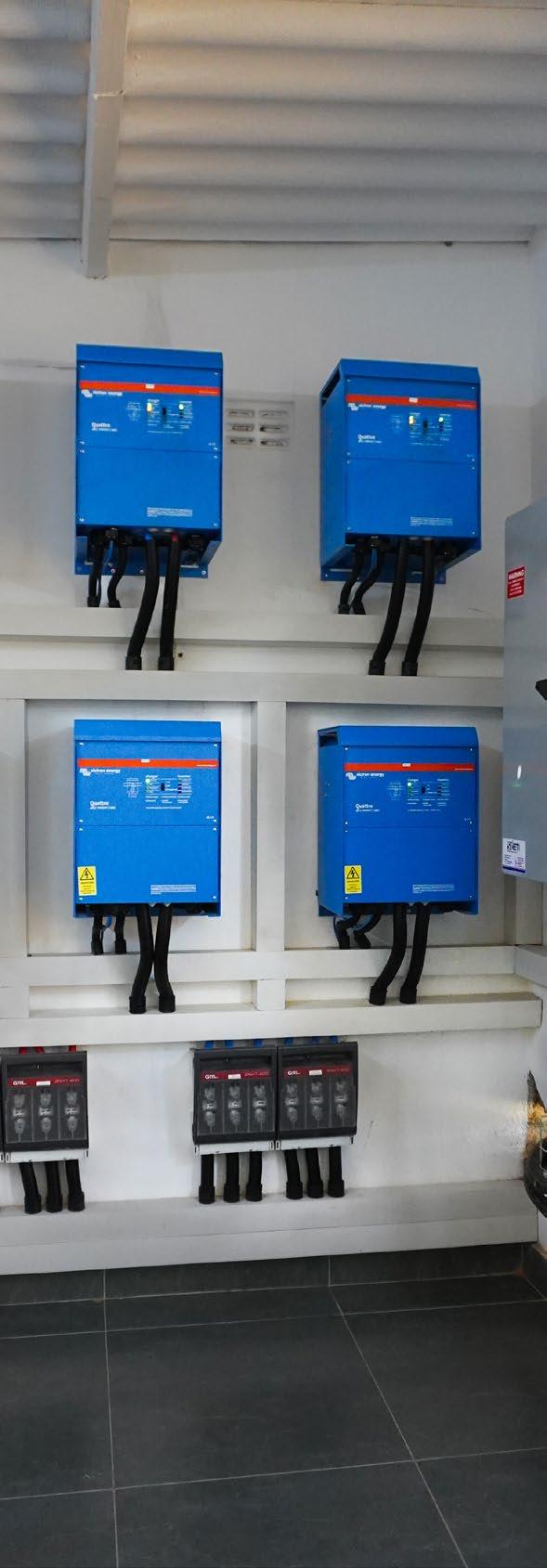


This project is a key step towards fulfilling Sinet Africa’s broader vision and mission for Zimbabwe and the African continent. Their vision is to be a leading force in transforming Africa’s energy landscape, by delivering accessible, reliable, and sustainable renewable energy solutions that power progress and uplift communities.
Their mission is to accelerate Africa’s transition to clean energy by providing innovative solar technologies and inclusive financing models that empower individuals, businesses, and institutions, while fostering energy independence, economic growth, and environmental stewardship.


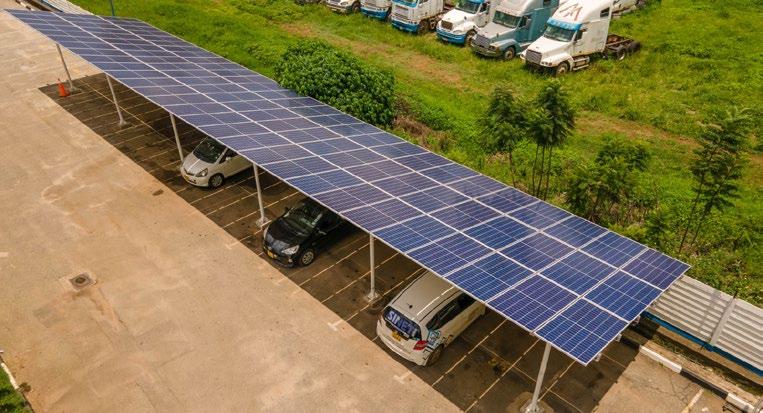
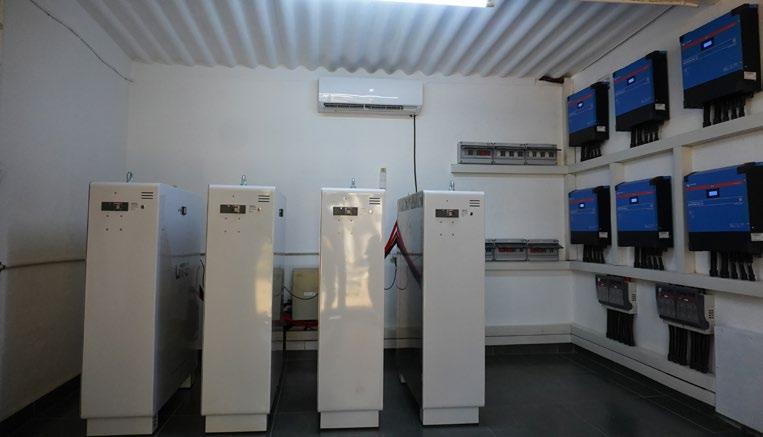


Sinet Africa’s next steps include establishing regional branches across Zimbabwe to increase accessibility, introducing Pay-As-You-Go solar models, and forming strategic partnerships to scale project financing. The company also plans to expand into large-scale commercial projects and regional markets, further solidifying its role as a key player in Africa’s green energy transition. The Sports Club project showcases Sinet Africa’s ability to deliver on its mission, one installation at a time.








A pivotal National Integrated Energy Resource Plan (NIERP) Seminar, orchestrated by the Ministry of Energy and Power Development, recently brought together a diverse array of stakeholders from Zimbabwe's energy sector. The crucial gathering served as a platform for comprehensive engagement on the government's ambitious plan for energy supply over the next 45 years, signalling a long-term strategic vision for the nation's energy landscape.
The core of the seminar revolved around groundbreaking research conducted by consultants, focusing on Energy Demand Forecast and Demand Management Options across all energy sources, including Liquefied Petroleum Gas (LPG). This in-depth study is designed to be the bedrock for informing government policy, providing essential data and insights to guide energy consumption and demand management strategies throughout the extensive period covered by the plan.
Participants, comprising representatives from ZERA, ZESA, IPPs, industry leaders, environmental agencies, academic institutions, and consumer bodies, engaged in robust discussions. The seminar underscored the importance of a collaborative approach to addressing Zimbabwe’s energy challenges and harnessing its potential. Key areas of deliberation included projections for future energy needs, the role of renewable energy sources, the optimization of existing infrastructure, and the development of new energy projects to ensure long-term sustainability and reliability.
The findings presented during the seminar are vital for crafting policies that will not only ensure energy security but also promote economic growth and environmental stewardship. The government’s ability to understand anticipated demand across different sectors – from industrial and commercial to domestic – can enable it to formulate targeted interventions. These include strategies for energy efficiency, incentives for renewable energy adoption, and frameworks for attracting investment into the energy sector.
The focus on demand management options, including for LPG, highlights a holistic approach to ensuring efficient use of all available energy resources. This forward-thinking seminar marks a significant step in Zimbabwe’s journey towards a resilient and diversified energy future. The insights gleaned from the demand forecast and management options research will be instrumental in shaping a comprehensive energy policy that supports national development goals, enhances energy access for all citizens, and positions Zimbabwe as a leader in sustainable energy planning for decades to come.


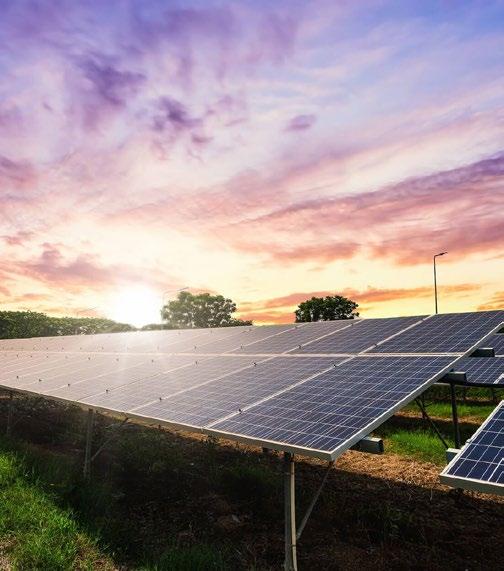









The Liquid Petroleum Gas Safety Association of Zimbabwe (LPGSAZ) played a prominent role in a recent pivotal stakeholder meeting with the City of Harare and the Zimbabwe Energy Regulatory Authority (ZERA).
This crucial gathering provided a vital platform for key industry players and authorities to collectively engage on the pressing challenges surrounding the safe and sustainable consumption of energy, particularly within the burgeoning LPG sector.
LPGSAZ, recognized as a key stakeholder, was specifically invited to contribute its extensive expertise and insights into the safe handling, storage, and usage of liquefied petroleum gas.



The Association has been at the forefront of advocating for stringent safety standards and best practices, recognizing the rapid growth in LPG adoption for domestic, commercial, and industrial use across the country. This surge in consumption necessitates robust regulatory frameworks and public awareness campaigns to prevent accidents and ensure responsible energy utilization.
Discussions at the meeting delved into various critical aspects, including current regulatory gaps, the need for enhanced enforcement mechanisms, public education on LPG safety protocols, and the importance of certified installations and equipment. Stakeholders shared experiences and proposed collaborative solutions to mitigate risks associated with improper LPG handling, such as gas leaks, explosions, and carbon monoxide poisoning.
The focus was on creating a safer environment for consumers while supporting the continued expansion of LPG as an accessible energy source.
The collaborative spirit demonstrated at the meeting between LPGSAZ, the City of Harare, and ZERA underscores a shared commitment to consumer safety and sustainable energy development. Such forums are opportunities for fostering open dialogue and information exchange, as well as being instrumental in harmonizing efforts, strengthening oversight, and developing responsive policies.
This proactive engagement is crucial for safeguarding lives and property, promoting responsible energy use, and building public confidence in LPG as a clean and efficient energy alternative for Zimbabwean households and businesses.



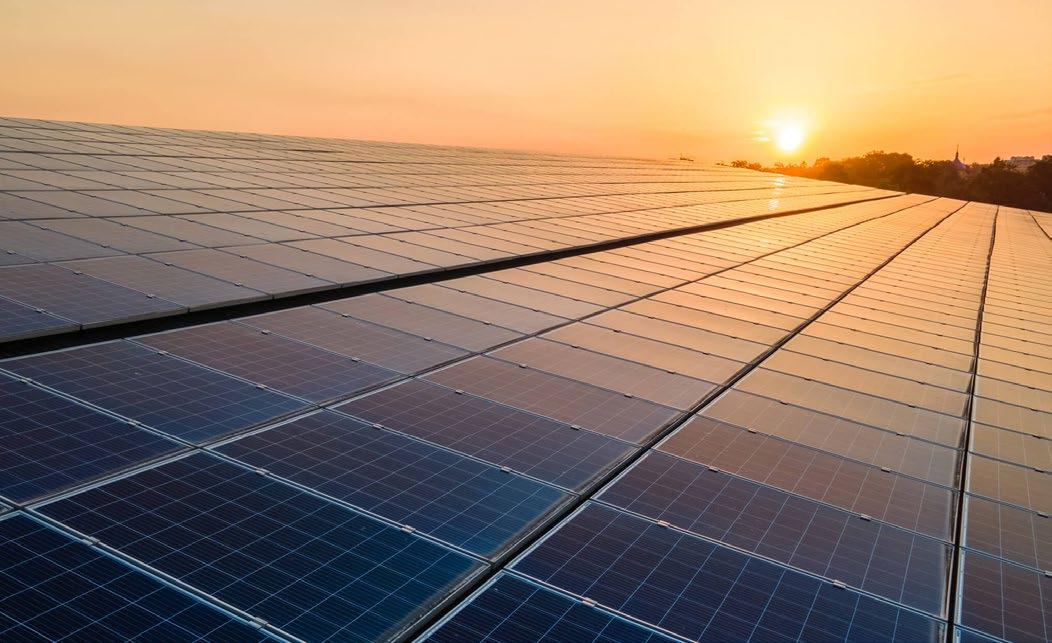

The Zimbabwe Energy Regulatory Authority (ZERA) is proudly hosting the Regional Energy Regulators Association of Southern Africa (RERA) Regional Information Sharing Seminar this week in Harare.
This pivotal event has convened key regional stakeholders, marking a significant collaborative effort to fortify the energy landscape across the Southern African Development Community (SADC) region.
The seminar serves as a crucial platform for energy regulators, policymakers, and experts from across SADC member states to engage in vital discussions and exchange invaluable insights.
Central to the agenda are critical topics including the intricacies of regulatory performance, the development and enhancement of robust energy data systems, and strategies for advancing sustainable energy solutions throughout the region.
ZERA's role as host underscores Zimbabwe's commitment to regional energy integration and fostering best practices in regulatory oversight
By facilitating these discussions, ZERA and RERA aim to harmonize regulatory frameworks, promote transparency, and ensure the efficient functioning of energy markets across SADC.




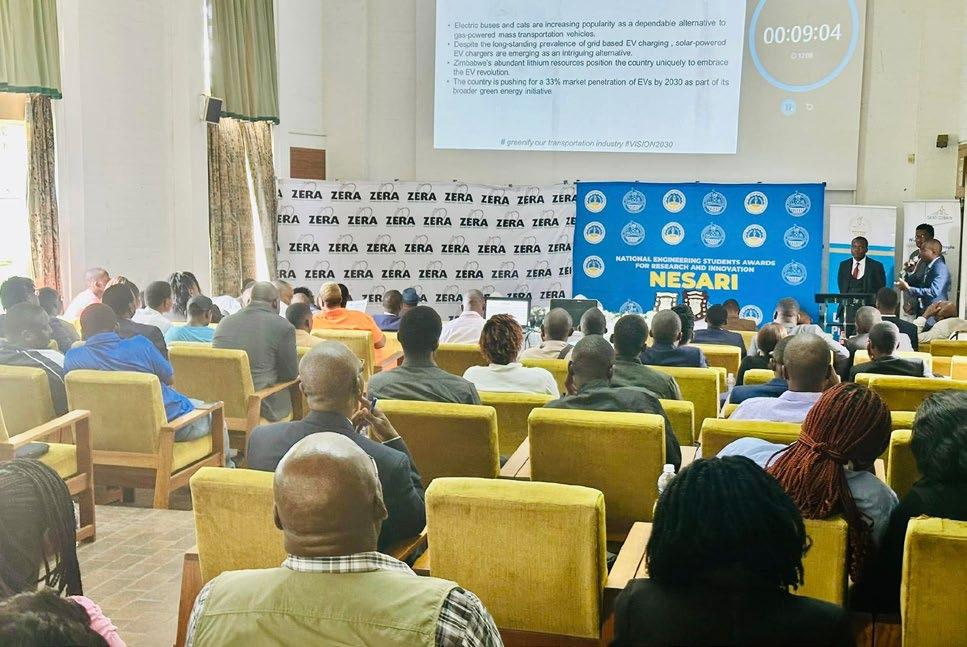
Improved regulatory performance is essential for attracting investment, while comprehensive energy data systems provide the foundation for informed policy decisions and effective resource allocation.
Furthermore, the focus on advancing sustainable energy highlights the region's collective push towards cleaner, more reliable power sources. This includes exploring renewable energy integration, energy efficiency measures, and innovative technologies that can mitigate climate change impacts while ensuring energy access for all.
The seminar is expected to yield actionable recommendations and strengthen networks among regional energy authorities. The collaborative spirit fostered at this gathering is vital for addressing shared challenges and collectively steering the SADC region towards a more secure, sustainable, and prosperous energy future.





Zimbabwe is on an ambitious and transformative journey towards achieving universal access to reliable, affordable, sustainable, and clean energy for all its citizens by 2030. This bold commitment, encapsulated in the National Energy Compact for the Republic of Zimbabwe, is directly aligned with the United Nations Sustainable Development Goal 7 (UN SDG 7) and the nation's own long-term development agenda, Vision 2030, which aspires to build a prosperous and empowered upper-middle-income society.
Despite possessing abundant renewable energy potential, Zimbabwe has historically grappled with significant energy challenges. As of 2024, a notable 38% of the population still lacks access to electricity, and over 61% of households continue to rely on traditional biomass for cooking. This energy poverty has had a disproportionate impact on rural communities, women, and youth, while simultaneously hindering productivity and constraining overall economic growth.
The Government of Zimbabwe unequivocally recognizes that access to modern energy services is not merely a convenience, but a fundamental enabler for industrialization, improved health outcomes, enhanced educational opportunities, gender empowerment, and holistic human development.



The nation's energy strategy is firmly rooted in the principle that while the public sector must provide strong leadership in policy and planning, it is equally crucial to mobilize significant private sector investment. This mobilization is to be achieved through a multifaceted approach, including appropriate de-risking mechanisms, competitive procurement processes, and ensuring regulatory certainty. This collaborative framework is already yielding tangible results, with numerous solar photovoltaic (PV) projects already operational or underway across the country, showcasing the practical application of this forwardthinking strategy.
For instance, companies like Paramount Garments Exports (Private) Limited and Proplastics Limited in Harare are embracing solar PV solutions, with capacities of 0.55 MW and 0.41 MW respectively. Beyond the capital, the embrace of solar is widespread. In Chegutu, both Charles Stewart Day Old Chicks Limited (Sun Valley Farm) and its Hatchery are utilizing solar PV, demonstrating the agricultural sector's transition to cleaner energy.
Zimbabwe Platinum Mines (Private) Limited is making a substantial contribution with a 35.00 MW solar PV project in Chegutu, highlighting the mining sector's commitment to sustainable practices. Educational institutions are also joining this green revolution, with St Patrick’s High School in Gweru (0.16 MW solar PV) and Falcon College in Bulawayo (1.00 MW solar PV) leading the way in integrating renewable energy into their operations.
The commitment extends to diverse sectors, with Hazeldale Enterprises (Private) Limited in Macheke (1.00 MW solar PV), Rainbow Tourism Group Limited in Kadoma (0.30 MW solar PV), and Kefalos Cheese Products (Pvt) Limited near Mubaira Road (0.60 MW solar PV) all contributing to the national grid's green transformation.
Further examples include Moores Farming in Darwendale (0.18 MW solar PV), Ally Property Investments (Private) Limited in Harare (0.17 MW solar PV), and Pharmaceutical Chemical Distributors (Private) Limited also in Harare (0.12 MW solar PV). Even agricultural and timber enterprises such as Ariston Management Services (Private) Limited in Chipinge (0.50 MW solar PV), Border Timbers Limited in Chimanimani (0.81 MW solar PV), Fletchers (Private) Limited in Guruve (0.15 MW solar PV), and Sligo Farm (Private) Limited in Chinhoyi (0.50 MW solar PV) are actively participating in this nationwide shift.
This broad-based adoption of solar energy across various industries and regions underscores the growing momentum of Zimbabwe's energy transition. The National Energy Compact is not just a document; it is a living roadmap guiding the nation towards a future where clean, sustainable, and affordable energy is a reality for every Zimbabwean, propelling the country towards its Vision 2030 goals and fostering inclusive growth and climate resilience.



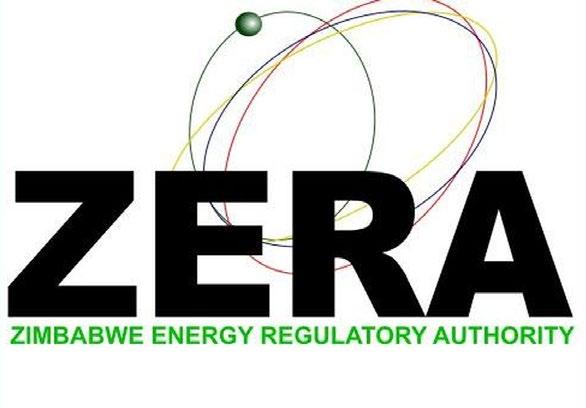
The Zimbabwe Energy Regulatory Authority (ZERA) has released its 2024 Annual Report, detailing a year of significant strides, persistent challenges, and a clear vision for a sustainable energy future. The report underscores ZERA's commitment to regulating the energy sector for the benefit of both consumers and suppliers, aiming for universal access to sustainable energy by 2030.
In 2024, ZERA operated under the guiding theme of "Minigrids - Increased Access to Energy," focusing on initiatives to enhance energy accessibility, particularly in remote areas. A notable achievement was the commissioning of a 200KW mini-grid in Hakwata, Chipinge District, alongside other smaller mini-grids nationwide, demonstrating the potential of this model for widespread energy access.
Key Achievements and Performance Highlights: The year 2024 saw a robust performance across various energy sub-sectors.
Energy supplied increased by 9.7% to 11,082 GWh, up from 10,096 GWh in 2023. Independent Power Producers (IPPs) played a crucial role, supplying nearly 453.7 GWh, a 16% increase from 2023. ZERA licensed 17 electricity generation projects with a combined capacity of 786.08MW and three electricity retail supply companies.
The Authority also facilitated the growth of captive power producers, particularly for solar systems used by companies for their own consumption, aiming to bring stability to the electricity sub-sector. In the petroleum sector, the number of licensed retail operators grew to 996 from 936 in 2023, reflecting a thriving industry and healthy competition. Fuel supply remained generally stable throughout the year.
ZERA graded 339 retail service stations for compliance with technical and customer service standards, with 3% receiving 5-star ratings, 50% receiving 3-star ratings, and 47% receiving 1-star ratings.


The Liquefied Petroleum Gas (LPG) sub-sector also experienced increased consumption, with 77 million kgs of LPG imported in 2024, compared to 66 million kgs in 2023. Compliance rates at licensed LPG retail sites stood at 93.7%.
ZERA continued its mandate to regulate the energy sector fairly, transparently, efficiently, and cost-effectively. The Authority's total assets as of December 31, 2024, stood at ZWG532,758,818, with a total income of ZWG329,289,006. A surplus of ZWG27,358,865 from electricity receipts will be remitted to the Rural Electrification Fund, as stipulated by the Energy Regulatory Act.
The year also saw significant efforts in environmental compliance and energy efficiency, with 4,679 energy efficiency inspections conducted on companies in Zimbabwe. ZERA also ran workshops and public outreach events to raise awareness on energy-efficient practices.
Despite these successes, challenges persist. Electricity supply remained subdued, with an average capacity of 1,300MW against a demand of 1,700MW, primarily due to reduced water levels in the Kariba Dam. In the petroleum sector, 44 sites were found with non-compliant fuel, with 38 cases attributed to suspected adulteration. All offending sites were closed for investigation and prosecution.
The increase in accidents due to mishandling of LPG and non-observance of safety procedures was also a concern. The report also highlighted an increase in consumer complaints, with 92 complaints received in 2024, up from 59 in 2023, and 88% of them resolved. A worrying trend observed was that 33% of complaints were related to fuel contamination cases.
ZERA is addressing these issues by revising regulations, including those for solar products and installations to curb substandard products and poor workmanship, and the Electricity Public Safety regulation to introduce registration of electricity service companies and personnel. The Net-Metering regulation was also improved to allow for virtual net-metering and monetisation of excess credits. The Authority plans to procure a Gas Chromatography machine to identify substances used for fuel adulteration.
Looking ahead, ZERA remains committed to its vision of a sustainable, efficient, and inclusive energy sector. The Authority plans to continue engaging with stakeholders, including government, industry players, and civil society, to ensure that its regulatory framework effectively addresses issues of energy access, affordability, and reliability, which are vital for Zimbabwe's economic development and social welfare. The opening of a new regional office in Gweru signifies ZERA's commitment to devolution and expanding its reach across all provinces.
The ZERA 2024 Annual Report serves as a comprehensive overview of the Authority's dedication to "Empowering a Sustainable Energy Future for Zimbabwe".







The Zimbabwean government has officially approved a Memorandum of Understanding (MoU) with Zambia, paving the way for the development of a new pipeline system dedicated to transporting refined petroleum. This significant bilateral agreement, announced by Information, Publicity and Broadcasting Services Minister Dr. Jenfan Muswere during a recent post Cabinet briefing, marks a crucial step in enhancing regional energy infrastructure and fostering economic cooperation.
The core objective of this MoU is to leverage Zimbabwe’s existing and expanding capacity in oil and gas storage, processing, and transportation. This infrastructure will serve Zambia’s growing demand for more affordable and efficient energy solutions. By establishing this cross-border pipeline, both nations are committed to stimulating private sector development while simultaneously improving overall energy accessibility across the region.
The new pipeline project is anticipated to revolutionize fuel transportation between the two countries, making the process significantly more efficient and environmentally conscious. A key benefit highlighted is the expected reduction in the number of fuel tankers currently utilizing shared road networks. This shift from road to pipeline transportation will not only ease congestion but also substantially decrease damage to vital road infrastructure, contributing to long-term cost savings and improved road safety.
Beyond the immediate logistical and environmental advantages, the pipeline project is poised to deliver broader economic benefits. By moving fuel via a secure and regulated pipeline system, both Zimbabwe and Zambia aim to combat fuel tax evasion, significantly reduce transportation costs for refined petroleum products, and ultimately bolster their respective energy security.
Victoria-Falls-bridge-ZambeziRiver-Zimbabwe-Zambia







This move towards a more streamlined and secure supply chain will create a more stable and predictable energy landscape for businesses and consumers alike. The agreement underscores a shared vision for regional energy integration and highlights Zimbabwe's strategic position as a potential logistical hub for refined petroleum products in Southern Africa.
While specific timelines for implementation and detailed funding mechanisms are yet to be fully disclosed, the approval of this MoU lays the essential groundwork for feasibility studies, potential public-private partnerships, and collaborative regulatory frameworks.
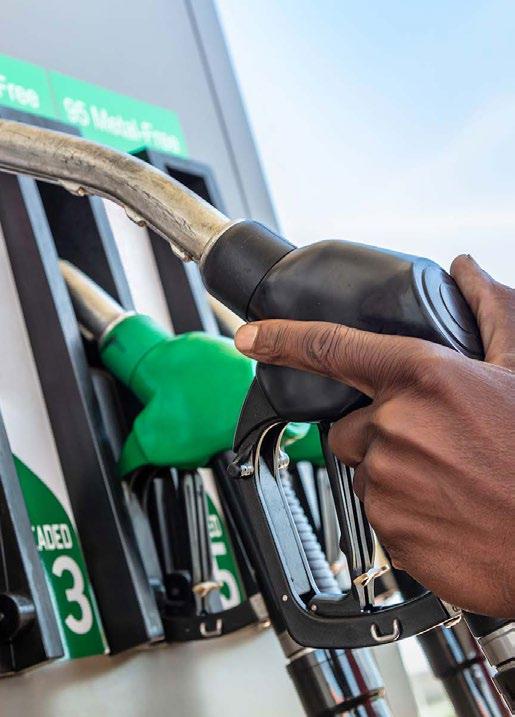
Technical teams from both nations are expected to commence planning and consultation in the coming months, moving the project from conceptualization to tangible development. This initiative represents a strong commitment to sustainable development and regional collaboration, promising a more efficient and secure energy future for Zimbabwe and Zambia.






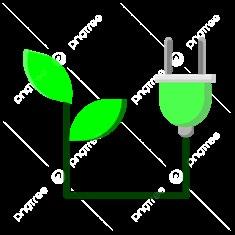
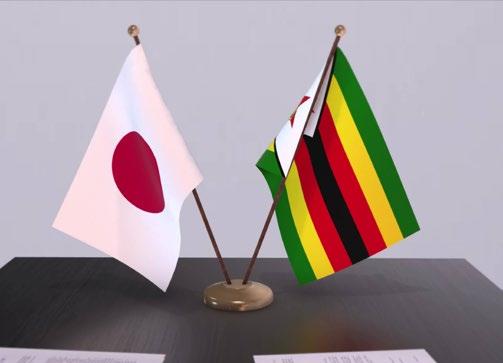
Zimbabwe took a significant stride towards bolstering its energy security today, as President Mnangagwa witnessed the signing of a pivotal Memorandum of Understanding (MoU) with the Japan Organisation for Metals and Energy Security (JOGMEC). The event unfolded at the Zimbabwe Business Forum in Osaka, where President Mnangagwa served as the Guest of Honour, emphasizing the nation's strategic focus on a secure and sustainable energy future. The Forum, drawing over 200 Japanese businesses, deliberated on "Unlocking Sustainable Growth through Strategic Partnerships," a theme highly relevant to Zimbabwe's energy aspirations. The collaboration with JOGMEC is a direct response to the global and national imperative for diversified and reliable energy sources.


This MoU is poised to unlock critical investment and expertise in Zimbabwe's energy sector, from exploration to development and efficient utilization of energy resources.
This landmark agreement is expected to facilitate Japanese involvement in securing vital energy minerals and potentially advancing renewable energy projects within Zimbabwe. By partnering with JOGMEC, Zimbabwe aims to enhance its capacity for energy production, reduce reliance on single energy sources, and integrate cutting-edge technologies to improve energy efficiency and stability.
Discussions at the Forum also highlighted Zimbabwe's broader potential for energy development, including its vast solar and hydro resources, which are crucial for a resilient energy mix. The strong turnout from Japanese businesses signals their recognition of Zimbabwe as a key player in the future of energy supply chains in Africa.
This strategic partnership is not merely about resource extraction but about building a robust and secure energy framework that supports industrial growth and improves the quality of life for all Zimbabweans.
The collaborative efforts initiated today are fundamental to ensuring long-term energy resilience and driving sustainable economic development in the nation.
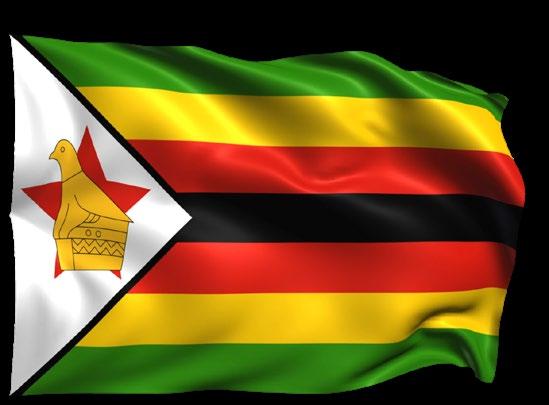
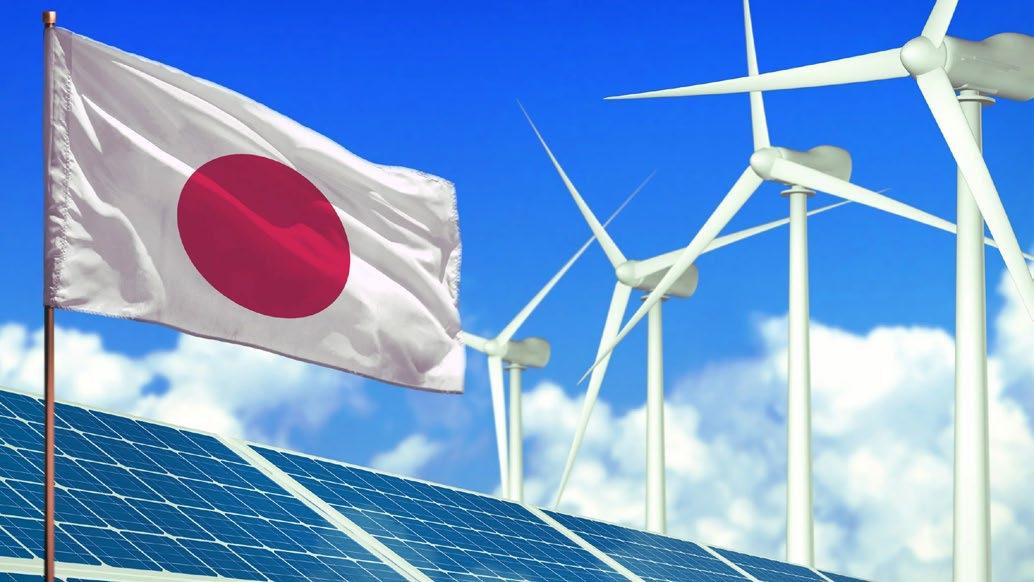



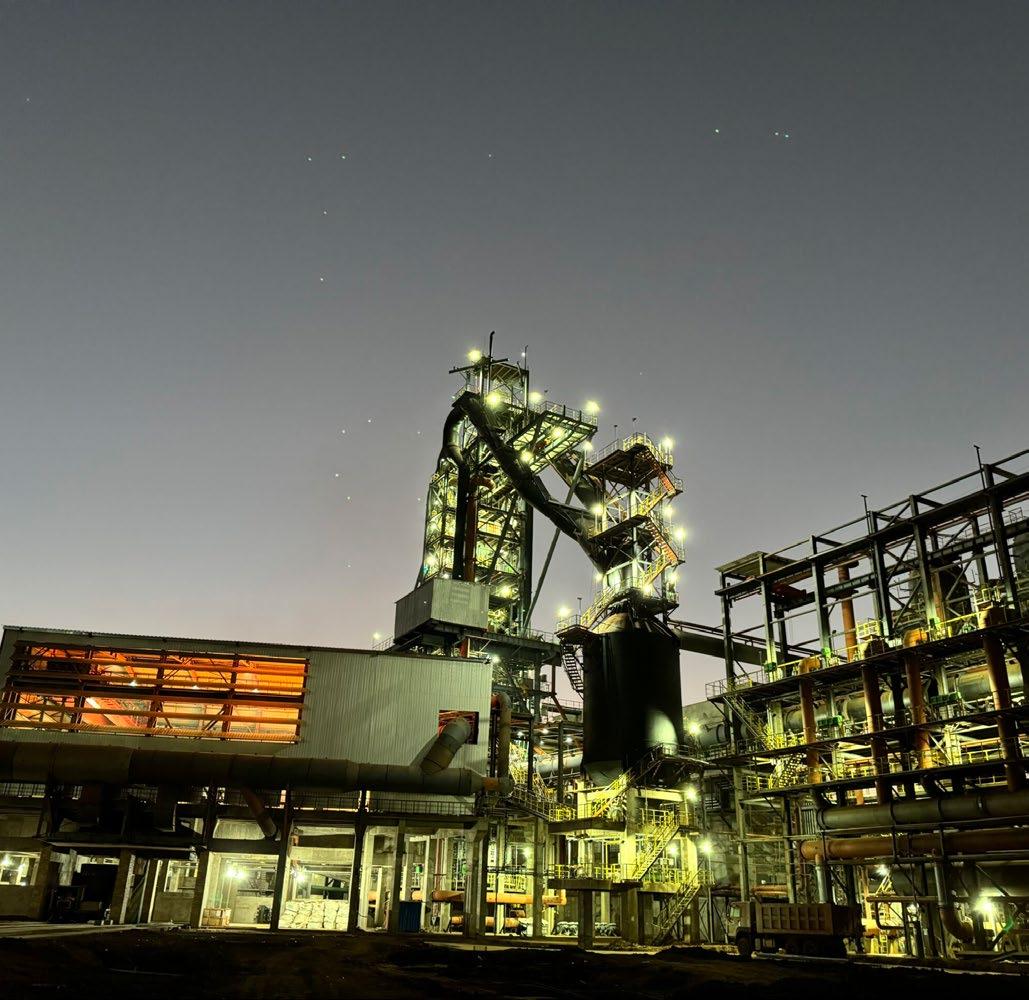



Excellent news for the Zimbabwean construction sector! Dinson Iron & Steel Company (DISCO), a rapidly emerging giant in the nation's industrial landscape, recently officially achieved ISO 9001:2015 Quality Management Systems certification. This significant accomplishment, awarded by the Standards Association of Zimbabwe (SAZ), underscores DISCO's unwavering commitment to international quality standards in its operations and products.
The Certificate of Registration, identified as Certificate No. Q405, was issued on May 23, 2025, and is valid until May 22, 2028. This rigorous certification confirms that DISCO's processes and systems meet the highest global benchmarks for quality management, providing customers with an assurance of reliability and excellence.
In even more exciting news for the construction industry, DISCO proudly announces that it is currently stocked with over 1,000 tons of high strength rebar, adhering to the BS4449-2005 500MPA standard. This crucial building material is available in a comprehensive range of sizes, from 12mm to 32mm, catering to diverse construction needs. The availability of such a substantial quantity of certified, high-quality rebar further solidifies DISCO's position as a dependable and vital supplier to infrastructure development across Zimbabwe and beyond.
Located at Stand No. 18829/2020 Nyikavanhu, Manhize, Mvuma, DISCO continues to contribute significantly to local employment and economic growth. This ISO 9001 certification is a testament to the dedication of its workforce and management, ensuring that "Quality you can trust!" is not just a slogan, but a foundational principle of their operations. This achievement marks a pivotal moment for DISCO, enhancing its reputation and cementing its role as a leader in African steel production.



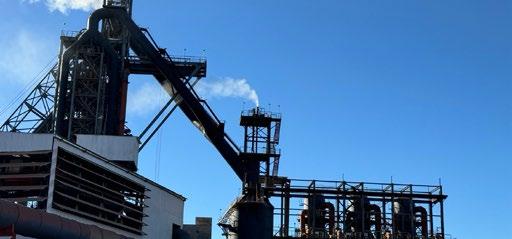



The People’s Own Savings Bank (POSB) has unveiled a Solar and Starlink Loan, a transformative financing solution designed to help schools and staff in the education sector across Zimbabwe to access reliable solar energy and high-speed internet connectivity via Starlink. This people-centric initiative is a direct response to the growing need for digital inclusion in education. Research shows that over 60% of rural schools in Zimbabwe lack reliable electricity, and more than 70% have no internet access, severely limiting their ability to implement e-learning and digital literacy programs. POSB’s new loan product aims to close this gap and empower schools to fully participate in the digital economy.
POSB has partnered with Transerv, Global Solar, and TelOne to provide affordable financing for solar and Starlink kits. TelOne is responsible for the Starlink hardware and installation while Transerv & Global Solar provide high-quality solar kits and deployment. The available solar kits range from 1kVA to 20kVA. “This is more than just a loan. It’s a game changer,” said Garainashe Changunda, POSB’s CEO. “We are enabling schools, especially in underserved rural communities, to leap into the future with sustainable energy and world-class internet access. It’s part of our broader commitment to development, financial inclusion and contribution towards vision 2030 which aims to achieve an upper middle-class society.






“We recognise that collateral security is often the biggest barrier to accessing financing. That’s why we’re offering this solar and Starlink kit loan facility with a maximum loanable amount of USD10,000, without requiring collateral, ensuring that no one and no place is left behind,” Changunda added. The Solar and Starlink loan facility is available to all registered schools that maintain an active deposit account with POSB including but not limited to mission schools, public and private schools, primary and secondary school, colleges and tertiary institutions. Staff members in the education sector including teachers, lecturers and staff members affiliated to the Ministry of Primary and Secondary Schools Education and the Ministry of Higher and Tertiary education also qualify. Once all required documents have been submitted, loan approvals are processed within 48 hours, and installations are completed within seven days, ensuring minimal disruption to learning.
Schools and individuals can finance both solar systems and Starlink equipment under a single loan package, with flexible repayment terms of up to 24 months, aligned to school income cycles. No collateral is required for loans under USD10,000, making the product accessible even to the most resource-constrained schools. To apply, schools must provide proof of registration, a six-month POSB bank statement, identification and proof of residence for School Development Committee (SDC) members and the school head, a supplier quotation, SDC meeting minutes and constitution, and a signed borrowing mandate. In addition to this offering, POSB also provides a General School Asset Financing Loan to fund other essential infrastructure and equipment needs.This initiative underscores POSB’s role as a development-focused, people-first institution committed to building a more inclusive and empowered Zimbabwe.
For more information or to apply, schools and staff are encouraged to visit their nearest POSB branch or call the Bank’s virtual service centre on toll-free number 223.









Geo Pomona Waste Management has embarked on a strategic journey to secure ISO certification. Recently, the company's senior management team participated in an intensive Integrated Management System (IMS) training, a crucial step that underscores its commitment to operational excellence, environmental sustainability, and quality management. This initiative not only strengthens internal processes but also reaffirms the company's vision to deliver a cleaner, greener Zimbabwe.
The pursuit of ISO certification is a major milestone for Geo Pomona. By aligning its operations with international standards, the company is ensuring that its practices meet the highest global benchmarks for safety, quality, and environmental responsibility. This commitment is particularly vital given the company’s focus on waste-to-energy solutions, a sector where precision and sustainability are paramount. The training will equip the management team with the necessary skills to implement and maintain a robust management system, leading to improved efficiency and accountability across all facets of the business.
This strategic endeavour is set to deliver tangible benefits for both the company and the country. Adhering to ISO standards will enhance operational efficiency, reduce risks, and build greater trust with stakeholders. Furthermore, it positions Geo Pomona as a leader in sustainable waste management, attracting potential partners and investments that are equally committed to environmental stewardship. This forward-thinking approach, championed by the company's leadership, is a testament to its dedication to continuous improvement and innovation, and it solidifies its role in helping to build a sustainable future for Zimbabwe


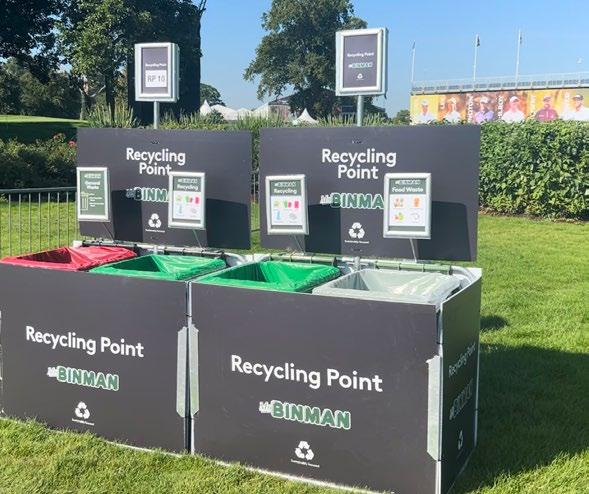



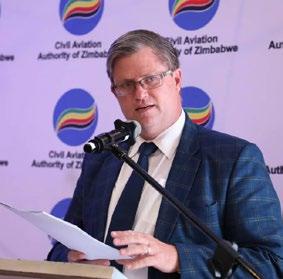


Zimbabwe is positioning renewable energy at the forefront of its strategy to overcome the developmental chaof being a landlocked country. This was the central message delivered by Transport and Infrastructural Development
Deputy Minister Hon. J.K. Sacco at the 3rd UN Conference on Landlocked Developing Countries (LLDCs), where he urged for urgent action to support the newly adopted Awaza Programme of Action (APoA).
Hon. Sacco highlighted Zimbabwe's commitment to transforming itself into a "land-linked" nation by investing in climate-smart infrastructure and sustainable energy solutions.
The Deputy Minister underscored the severe hurdles LLDCs face, including crippling trade costs, inadequate infrastructure, and vulnerability to external shocks, all of which hinder economic growth. While he welcomed the APoA as a vital new framework for cooperation, he stressed that its success is contingent on resolute implementation, adequate financing, and genuine partnerships. Sacco's call for action extended to a plea for scaled-up technical cooperation, technology transfer, and sustained investment from international development partners.
Emphasizing the disproportionate impact of climate change on LLDCs, Hon. Sacco urged developed nations to honour their climate finance pledges. He advocated for urgent global financial reform, welcoming the recognition of LLDCs' special needs from the recent Seville Financing ter outlined Zimbabwe's commitment to becoming a land-linked nation through a focus on climate-smart infrastructure, robust renewable energy projects, enhanced digital connectivity , and regional integration. The message reinforces the nation’s dedication to using sustainable innovation to fuel its economic future.
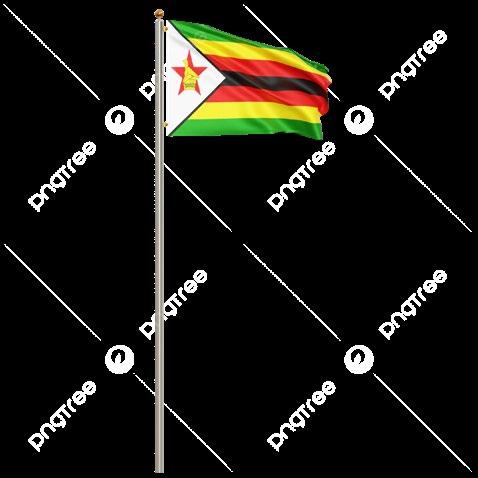
“The Deputy Minister underscored the severe hurdles LLDCs face, including crippling trade costs, inadequate infrastructure, and vulnerability to external shocks, all of which hinder economic growth”.
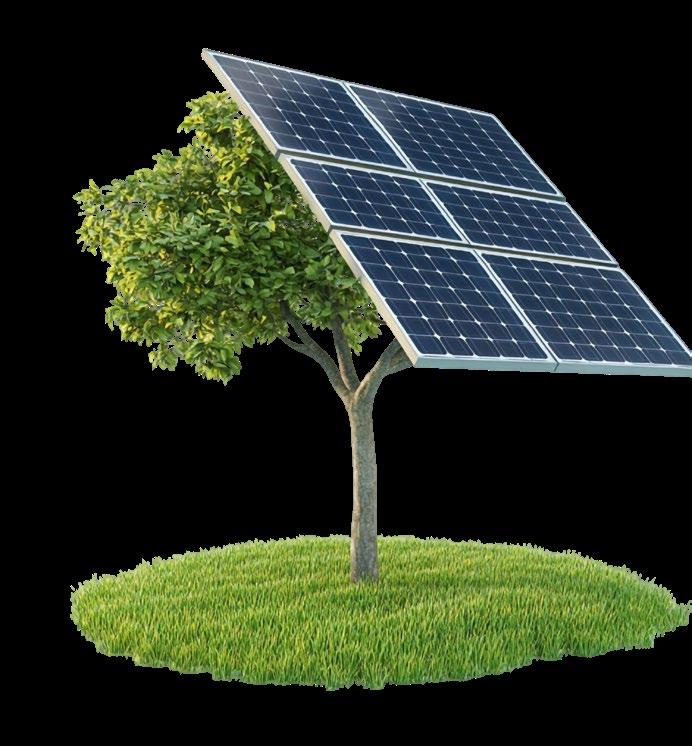








As Zimbabwe moves to reshape its digital landscape, Powertel Communications, a subsidiary of ZESA Holdings, has officially partnered with Paratus Zimbabwe to launch a high-capacity national fibre network. This strategic collaboration is set to revolutionize connectivity across the country, providing a resilient and affordable long-distance backbone for enterprises and citizens alike. The partnership, which was officially announced in June 2025, marks a major step forward in Zimbabwe's digital transformation journey.
The two companies have committed to jointly investing in the rollout of the fibre infrastructure, with the first phase of the project focusing on connecting key locations: Plumtree, Bulawayo, and Livingstone. This initial effort is aimed at significantly enhancing connectivity in these regions and establishing crucial cross-border links with neighbouring countries. The partnership leverages Powertel's existing license to operate an optic fibre backbone network and Paratus Zimbabwe's recently acquired communications license, combining their strengths to accelerate the development of a robust digital infrastructure.
Willard Nyagwande, the Acting Managing Director of Powertel Communications, emphasized the partnership's importance, stating that it will enable the company to "deliver on our mission to provide high capacity and affordable connectivity to the people and enterprises of Zimbabwe
." Similarly, Martin Cox, Chief Commercial Officer of the Paratus Group, expressed his delight in the collaboration, noting that it will "bridge gaps between neighbouring countries and further strengthen and widen our contiguous network offering." This joint venture positions both companies at the forefront of Africa's digital revolution, with a shared vision of building networks that empower people and support the nation's economic growth towards a brighter digital future.


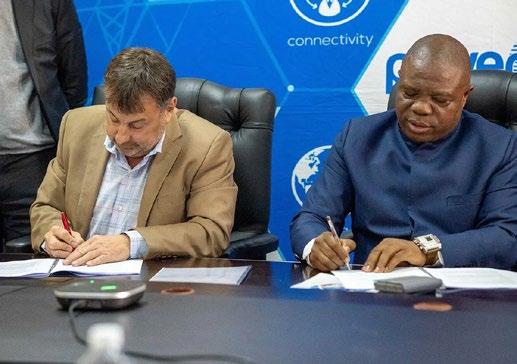




The Minister of Energy and Power Development, Hon. E. M. J. G. Gumbo, M.P., has announced key leadership appointments at ZESA Holdings, signalling a renewed commitment to corporate governance and strategic reform within the power utility. With effect from August 5, 2025, Mr. Albert Joel Nduna has been named the Acting Board Chairman for ZESA Holdings (Pvt) Ltd, while Eng. Cletus Nyachowe will serve as the Acting Group Chief Executive Officer for the Zimbabwe Electricity Transmission and Distribution Company (ZETDC).


These appointments were made in accordance with the Public Entities Corporate Governance Act, a move that underscores the government's focus on institutional accountability and efficiency. In his statement, Minister Gumbo outlined his expectations for the new leadership, emphasizing that they are tasked with bringing a fresh approach to ZESA Holdings. This new approach is to be defined by "high levels of integrity, transparency, and accountability."
The Minister's directive is closely tied to the government's broader national goals, particularly those outlined in the National Development Strategy 1 (NDS1) and the vision of achieving an upper-middle-income economy by 2030. The appointments are expected to play a crucial role in overseeing the strategic direction of ZESA, with the ultimate goal of ensuring a reliable and adequate supply of electricity to all sectors of the economy. This leadership change is a clear indication that the government is actively working to address the challenges facing the power utility and to position it for a more stable and prosperous future.


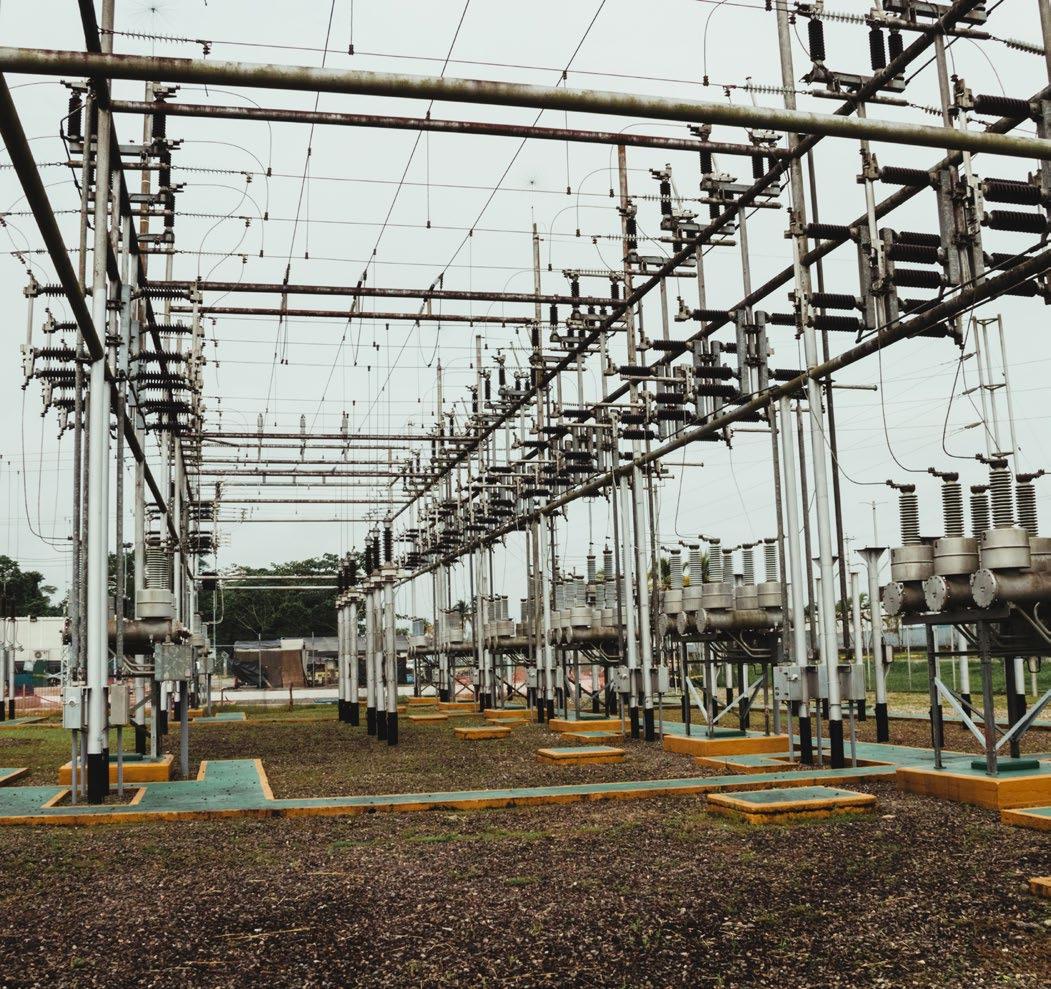










A new 2.7MWp solar PV installation has been commissioned at National Foods' Aspindale plant in Harare. The project was spearheaded by Cicada Solar, a division of Cicada Holdings, one of southern Africa's largest and most diversified agri-businesses.
The newly installed solar plant is a significant development for National Foods, Zimbabwe's largest food producer. It is set to meaningfully reduce the facility's energy costs, thereby enhancing the company's competitive edge in the market. By harnessing solar power, the company is not only securing a more stable and reliable energy source but also making a strong commitment to sustainable business practices. The move aligns with a global trend of corporations adopting renewable energy to mitigate their environmental impact and improve operational efficiency.
The installation's capacity of 2.7MWp is substantial and is expected to cover a significant portion of the Aspindale plant's energy needs. This project demonstrates a forward-thinking approach from both National Foods and Cicada Holdings, showcasing how private sector collaboration can drive the adoption of green technology and contribute to national development goals.
For National Foods, this investment is a strategic response to rising energy costs and power supply challenges. It is a proactive measure that ensures business continuity and reinforces the company's position as a leader in the food production sector. The project serves as a powerful example of how Zimbabwe's industrial players are embracing renewable energy to foster long-term resilience and profitability, while also supporting the country's transition to a greener economy.




On June 11, Cicada Africa announced on their X platform that Cicada Solar was “proud to announce the commissioning of a 1MW solar plant at Falcon College, near Bulawayo.” This significant development represents a leap forward in sustainable energy solutions for educational institutions in the region.
The new solar facility ensures that Falcon College, which has a reputation for academic excellence and a vibrant campus life, can rely on a consistent and cost-effective power supply to support its thriving classrooms, dormitories, and sports fields. The benefits of this solar plant are multifold. Not only does it promote environmental sustainability by harnessing renewable energy, but it also reduces dependence on conventional electricity sources, which can be unreliable and costly.
The investment in solar power allows Falcon College to allocate more of its budget to educational resources and student activities rather than utility expenses. As the college continues to grow, the renewable energy solution promises to play a crucial role in meeting its increasing power demands. Cicada Solar, a subsidiary of Cicada Africa, stands at the forefront of renewable energy solutions in the region. With a commitment to sustainable development, the company specializes in designing, financing, and operating solar power plants that meet the diverse energy needs of various sectors.
According to the announcement, “Cicada Solar has also financed and will operate and maintain the solar plant, so our partnership with Falcon has just begun.” This collaboration not only ensures ongoing support and maintenance for the solar facility but also establishes a long-term commitment to sustainability at Falcon College.
Through this initiative, Cicada Africa reinforces its role as a key player in the African renewable energy landscape, promoting eco-friendly practices while empowering educational institutions to thrive. As more organizations recognize the advantages of solar energy, the future looks bright for both Cicada Solar and its partners.







Zimbabwe’s energy sector is experiencing a significant uplift, driven by a positive investment climate and clear policy direction from the government, particularly concerning renewable energy. As the nation accelerates its energy transformation, increasing collaboration among communities, private investors, and institutional enablers is proving crucial for achieving sustainable and inclusive access to electricity and clean cooking solutions.
This surge in investor confidence coincides with the development of the National Energy Compact for the Republic of Zimbabwe, a key policy initiative spearheaded by the Ministry of Energy and Power Development. The Compact, introduced by the Minister in London on June 4, 2025, as part of the Mission 300 (M300) initiative, aims to provide 300 million Africans with clean electricity and cooking solutions by 2030. This ambitious goal is backed by the World Bank and the African Development Bank, building upon the M300 declaration signed by African governments in Dar es Salaam earlier this year.
Stakeholders within the renewable energy sector have warmly welcomed the Compact, emphasizing the need for a business-friendly regulatory environment. Key concerns raised include the importance of clear policies for integrating mini-grid projects into the national grid and the provision of robust financial incentives. The chairperson of the Renewable Energy Association of Zimbabwe (REAZ) highlighted that foreign investment is significantly influenced by confidence in strong guarantees and supportive regulations.
This includes assurances that power utilities will connect mini-grids once they are established, alongside financial incentives to attract and scale up investment. Affordability for end-users remains a critical factor in achieving universal electrification. Nyangani Renewable Energy, one of Zimbabwe’s leading renewable energy companies, has been a consistent player since 2007, currently generating 40 megawatts of electricity through hydro and solar projects. The company has been feeding into the national grid for over 10 years, with its first project now 15 years old.
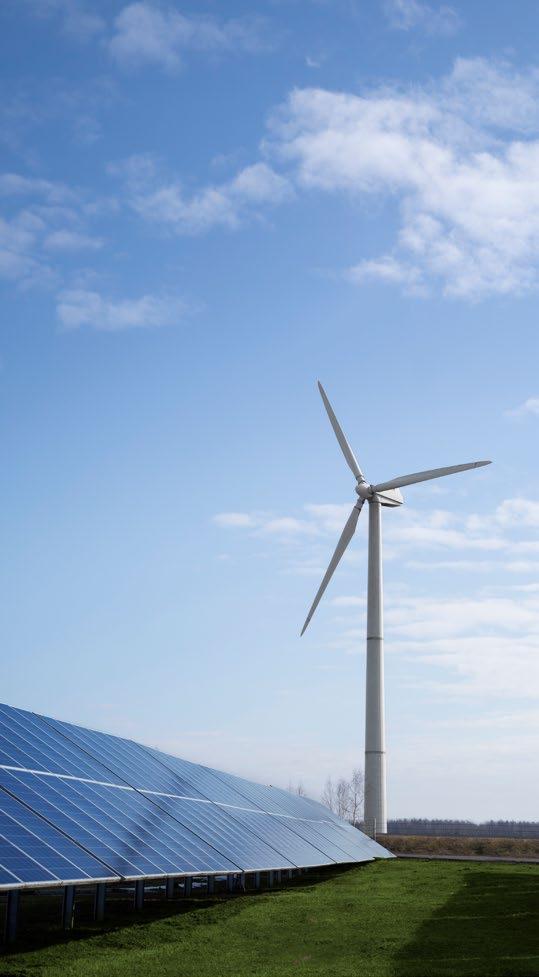


The ongoing development of a new hydro project in Nyanga further reinforces its long-term commitment to Zimbabwe’s energy sector. The role of Independent Power Producers (IPPs) is also expanding rapidly. Zimbabwe aims to address its energy access challenges through least-cost investments, supported by regulatory and financial reforms designed to attract private capital. The president of the Zimbabwe Independent Power Producers Association (ZIPPA) noted that private sector players have invested nearly US$400 million in the energy sector, primarily in solar, wind, and hydro projects. In the last decade, the contribution of IPPs has grown from almost zero to nearly 5 percent of the country’s total electricity, with a goal to reach 30 percent by 2030. Supporting these investments is ZimGreenCo, an energy intermediary dedicated to de-risking energy projects.
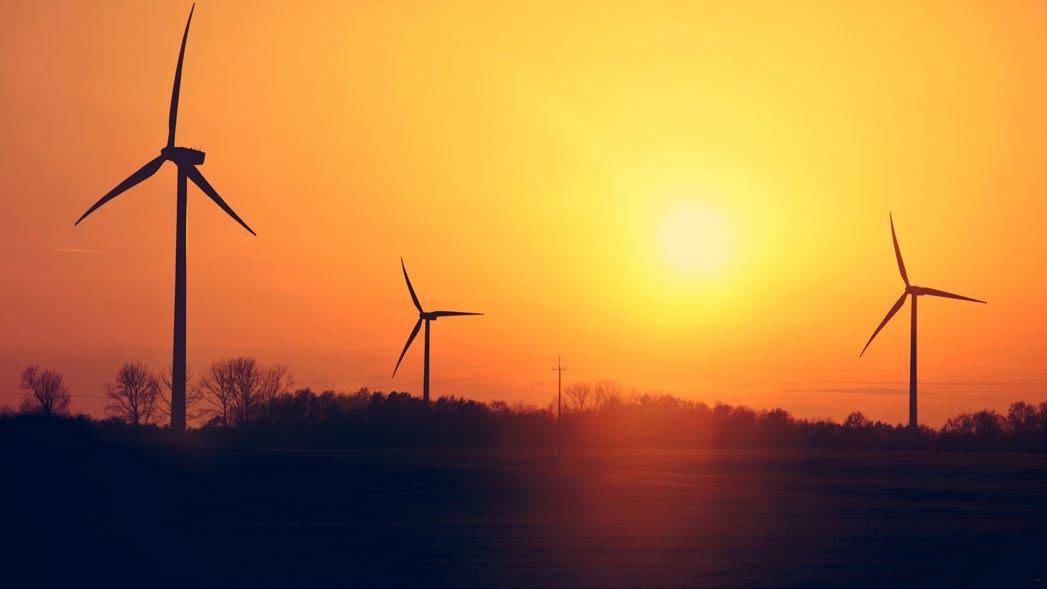

This organization facilitates bankable Power Purchase Agreements (PPAs) backed by a liquidity buffer, effectively mitigating off-taker risk and making projects more attractive to investors by ensuring timely payments. The positive impact of energy expansion is also being felt directly by communities. In Hwakwata, Chipinge, business owners and residents report significant improvements. A local shop owner praised new street lighting for enhancing security and extending business hours, recalling previous robberies during power outages.
At the Hwakwata Clinic, a nurse described the transformation from using lamps and “yellow boxes” for night deliveries to reliable solar-powered lighting, leading to better vaccine storage and safer nighttime operations. Currently, Independent Power Producers, including mini-hydro, solar PV systems, captive solar, and captive power plants, collectively supply nearly 200 megawatts to the national grid. As Zimbabwe continues to position itself as an attractive destination for energy investment, stakeholders express strong optimism that the implementation of the National Energy Compact will further unlock capital, improve energy access, and foster long-term economic growth.


A transformative shift is underway in Zimbabwe’s rural landscape, epitomized by the Kasikili Jabula Village Business Unit (VBU) in Ward 55, Hwange District. Today, Permanent Secretary, Professor Dr. Obert Jiri, officially commissioned the VBU, hailing its innovative approach to agriculture, particularly the pivotal role of its solar-powered irrigation system in enabling continuous, year-round cultivation for the benefit of local communities.
This momentous occasion marks a tangible milestone in the Zimbabwean government’s ambitious rural transformation agenda, demonstrating a practical and sustainable approach to uplifting livelihoods at the grassroots level. Established under the auspices of the Smallholder Agriculture Cluster Project (SACP), the Kasikili Jabula VBU has blossomed from a one-hectare garden into a vibrant, productive, and truly sustainable enterprise. Its success directly empowers 35 households, providing them with enhanced livelihoods and significantly improved food security in a region historically prone to climatic challenges and water scarcity.
Under the adept management of Agriculture Business Advisory Officer Mercy Chikava, the VBU has already demonstrated its immense potential, largely thanks to the reliable water supply from its solar-powered system. It recorded impressive earnings of USD 4,000 from its maiden cropping cycle and is optimistically projected to generate a remarkable USD 7,000 in the current season. This financial success is underpinned by a diverse and robust crop portfolio, which includes high-value produce such as okra, green pepper, carrots, spinach, Chomoliuer, covo, garlic, onions, cabbage, tomatoes, watermelon, and maize, ensuring both market appeal and nutritional diversity throughout the year.
During the commissioning ceremony, Professor Dr. Jiri lauded the Kasikili Jabula VBU as an exemplary model of sustainable rural enterprise. He particularly emphasized its ability to thrive even in the challenging agroecological Region 5B, a testament to the effectiveness of innovative agricultural practices that overcome environmental limitations. He underscored that the critical role played by the solar-powered irrigation system is what enables this continuous cultivation, thereby bolstering household food security and significantly raising incomes for participating families, free from the constraints of seasonal rainfall.






The Permanent Secretary spotlighted that this initiative powerfully reflects the practical impact of the Presidential Rural Development Programme in action. He affirmed that such village-level interventions are vital contributions towards the realization of Vision 2030, fostering inclusive growth and prosperity, truly transforming Zimbabwe “village by village.” The commissioning of the Kasikili Jabula VBU stands as a beacon of hope and a tangible demonstration of “Food Security: Everywhere, Everyday,” made possible by sustainable technology.

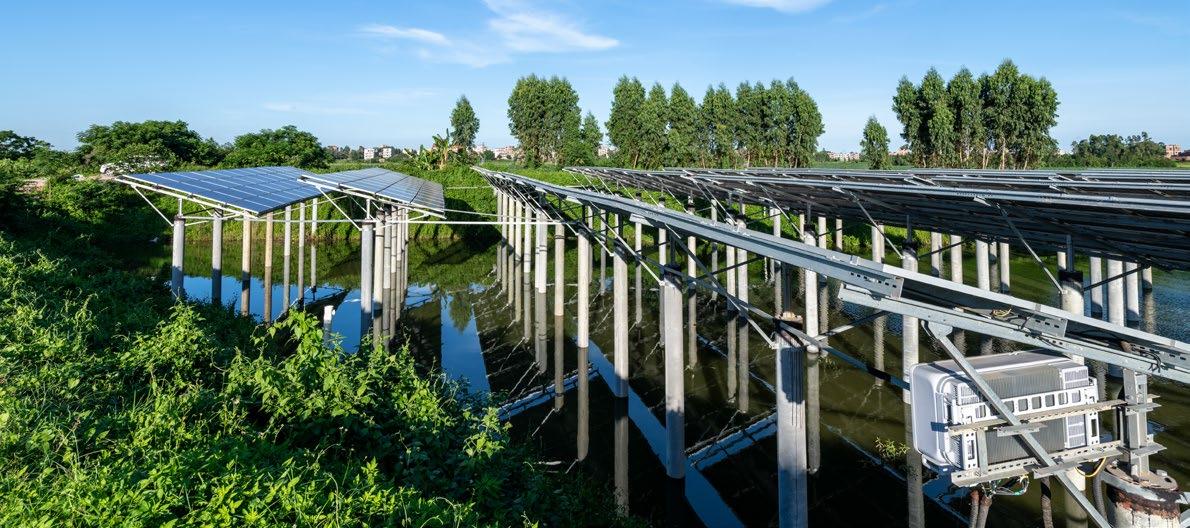



Zimplats’ recently officially commissioned its First Phase 185MW Solar Project and an expanded smelter at the Selous Metallurgical Complex. The company is a prominent member of the Implats Group and Zimbabwe’s largest Platinum Group Metals (PGMs) producer. The prestigious commissioning ceremony, held on July 23, 2025, was presided over by His Excellency, President Dr. E. D. Mnangagwa, who lauded these developments as a remarkable milestone in the nation’s quest for energy self-sufficiency and environmental sustainability.
President Mnangagwa, who toured the facilities, cut the ribbon, and unveiled plaques for both the smelter expansion plant and the Phase 1 35MW solar power plant, emphasized Zimplats’ pivotal role as a strategic partner in Zimbabwe’s ongoing industrialisation journey towards Vision 2030. He highlighted these projects as a prime example of what can be achieved through robust collaboration and unity of purpose among Government, industry, and communities. Such synergies, he noted, are crucial across all sectors to yield tangible economic benefits, including job creation, foreign currency savings, fiscal contributions, and the accelerated adoption of green and clean energy.


The commissioning of the 38MW furnace marks a defining moment for Zimplats and the broader mining sector. Officials say that this significant US$398 million investment project has resulted in a three-fold increase in the company′s smelting capacity, enabling Zimplats to process an impressive 380,000 tonnes of concentrate annually. This expanded smelter, built for US360 million, is designed to improve processing capacity, enhance environmental performance, and lower energy costs, tripling Zimplats’ overall smelting capacity. The facility itself is a colossal undertaking, spanning an area equivalent to 12 football fields. Its construction required immense resources, including 17,000 cubic metres of concrete, 3,500 tonnes of steel, 18 kilometres of pipework, and 350 kilometres of cabling. Notably, the majority of materials and labour for this ambitious project were sourced locally, except where specific technology was unavailable.
This expansion is expected to further transform Zimbabwe into a regional hub for platinum processing, creating vital employment opportunities and acting as a catalyst for downstream industries. At its peak, the project created over 1,600 jobs, with invaluable knowledge transfer occurring during the construction phase, particularly benefiting young artisans and contributing to the growth of skills within the local workforce. This aligns seamlessly with the Government’s vision of fostering a skilled workforce to drive the country’s re-industrialisation efforts.


Equally celebrated was the completion of Phase 1 of the solar project, which generates 35MW of electricity. This initial phase impressively provides 8% of Zimplats’ energy requirements, demonstrating the company’s steadfast commitment to clean energy and a sustainable future. This US$37 million investment in renewable energy is a clear indication that embracing green technologies is not just an environmental imperative but also a smart economic decision. The President urged other industry players in Zimbabwe to follow suit, highlighting that this plant will significantly reduce Zimplats’ reliance on external power sources, thereby contributing to national energy security. The subsequent three phases are planned to increase Zimplats’ power-generation capacity to 185MW, ultimately meeting its projected electricity needs upon the completion of its broader Expansion Programme.
The environmental benefits of the solar plant are substantial; by reducing the carbon footprint of Zimplats’ operations, the company is taking an important step towards shared goals of a cleaner and more sustainable environment, aligning perfectly with national objectives to combat climate change. The solar plant sits on 109 hectares and features 74,000 solar panels mounted on a singleaxis tracking system, along with state-of-the-art production control and security systems. It is the first of four phases for the 185MW PV solar project to be implemented across Zimplats’ two operating sites in Ngezi and Selous. President Mnangagwa also commended Zimplats for prioritizing comprehensive community engagement throughout the project’s lifecycle, from crucial pre-construction consultations to providing essential employment opportunities. Zimplats’ ongoing empowerment programme, which received Government approval two years prior, deeply resonates with the national strategic and policy quest to uplift livelihoods among rural communities.


The local enterprise development programme being undertaken has successfully incubated 23 small and medium enterprises engaged in manufacturing, as well as the provision of engineering and other services. Additionally, Zimplats has invested in five associate companies where the Zimplats Mhondoro-Ngezi, Chegutu, and Zvimba Community Share Ownership Trust holds shareholding. These initiatives are expected to significantly contribute to nurturing sustainable and empowered communities.
The commissioning of both the 38MW smelter and the 35MW solar plant embodies the overarching vision of an industrialised Zimbabwe, powered by sustainable energy, where communities thrive, jobs are created, and invaluable skills are transferred. President Mnangagwa extended his deepest gratitude to the dedicated men and women of Zimplats who tirelessly worked on these projects, urging continued collaboration to build a prosperous, energy-secure, and environmentally sustainable Zimbabwe for generations to come. With these remarks, he officially declared both the 38MW smelter and the 35MW solar plant at Zimplats’ Selous Metallurgical Complex officially commissioned.




Text by Olga Dzingo

Solar energy is improving communities through sustainable living and easy access to education. The Africa Development Mission Trust is empowering communities through solar energy. With 6 solar powered boreholes and a training center that runs 100% with solar energy, the Mhondoro community is in safe hands.
Established in 2002 by Pastor Denford and Shingirirai Chizanga, the organization has been transforming and improving lives through church planting, community development and training. Since its inception it has planted churches across Africa, built and established a vocational training center - Africa Development Mission Training Centre and empowered communities through borehole drilling, child sponsorship, water and sanitation, health, assisting those with special needs, disaster relief, and income generating projects.
Through these income generating projects, the organization has established community gardens where the Water pumps are solar powered. About six solar powered community gardens were established in Mhondoro including a vocational training center.
The Africa Development Mission Training Centre is 100% solar powered, caters for all youths, through empowering them with hand work skills like building, baking, hair salon and sewing.
Through the use of solar in water pumps, unlike the Bush Pumps from before, the Mhondoro Community has seen productivity. It has allowed the enlargement of the garden spaces hence increasing productivity. The rural gardens have catered for people of all demographics, offering a chance in running productive gardens. This was explained by Mr. Abiyuti, the organization’s head of the Community Development department.
“Through the use of solar powered pumps in community gardens, everyone has a chance in the productivity of the garden, be it an old lady, a mother with a baby on her back or a pregnant lady and even people with special needs.
The pumps have allowed sustainable living conditions for citizens in Mhondoro. It has also improved their lives drastically as they can generate income from these gardens and an improvement in their diets.”
Solar energy has improved and empowered the Mhondoro Community.
The Africa Development Mission Trust wishes to innovate and improve communities through solar, by offering courses that help youth harness this source of energy wisely





